NBA draft notebook: Early-entry list, 2017 prospect rankings and more
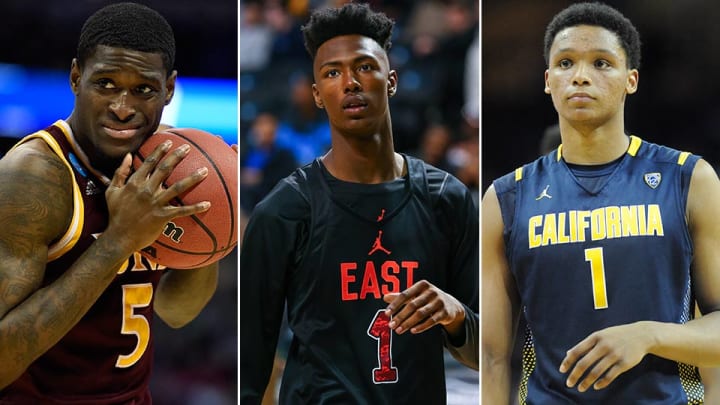
Get all of Jeremy Woo's columns as soon as they’re published. Download the new Sports Illustrated app (iOS or Android) and personalize your experience by following your favorite teams and SI writers.
Welcome back to the draft–scape, where workouts are about to begin, the combine and lottery are rapidly approaching, and the early–entry list was just officially released…with a whopping 162 names on it.
Let’s all say it together: one hundred and sixty–two. And that’s only the college underclassmen and international guys born in 1995 or later. Only 65-ish prospects will get combine invites. Only 60 will get drafted. The jury remains out on whether the new NCAA rules will actually help, by allowing players to partake in workouts and a withdrawal deadline of May 25 to maintain their college eligibility. On one hand, the players are empowered with a chance to get feedback, but on the other, there’s an enormous amount of work for the NBA and its teams to sift through. Was this really a good idea? We’ll find out, but not before a month–long free–for–all plays out and the 2016 field is finalized.
But enough about May. April was an important month for teams and prospects on several fronts. Let’s run it all back.
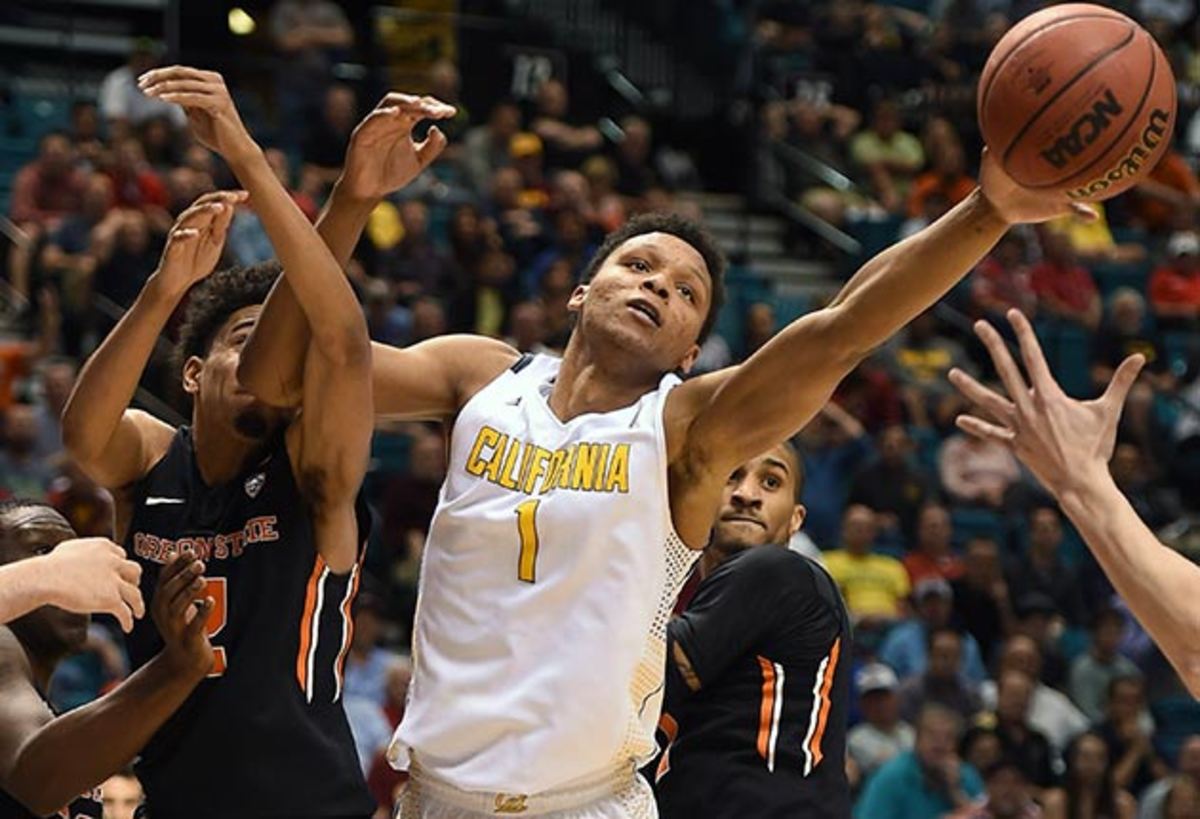
Should I stay or should I go now?
Three prospects on our last big board elected to not even dip a pinky toe into the draft pool, opting to return as the big men on campus. Most notable among them: Cal big man Ivan Rabb, who rated as the No. 12 prospect in the draft and had an outside shot to creep into the top 10. Multiple scouts saw him as a potentially–undervalued asset at this stage: a bankable rebounder with a developing offensive touch who won’t turn 20 until the middle of next season.
Now Rabb heads back to Berkeley, with a chance to be a featured offensive piece. Despite his lofty ranking out of high school, those touches never materialized for Rabb last season, thanks to a bevy of mouths to feed around the perimeter including fellow frosh Jaylen Brown, who opted to turn pro. Opinions are mixed on his decision: on one hand, he has a chance to solidify a top–10 spot next year, work on his body and arrive a more polished player. But then again, he’s passing on guaranteed money in a draft that’s universally considered poor. Factor in what’s sure to be a deeper lottery next year (more on that later), and Rabb had better bank on a sizable uptick in production and opportunity: his stock likely won’t get any higher without it.
• MORE NBA: Craig Sager: Always on the bright side (from SI magazine)
All that considered, Rabb has a chance to flourish next season: he can shoot from midrange, has good defensive instincts and profiles as a useful NBA player. He’s at less risk of getting exposed as a sophomore than Brown would have been, given the latter’s iffy feel and difficult adjustment to college defenses. Even if he put together a dominant season, Brown probably wouldn’t be that much more attractive to teams a year from now (he’s turning 20 in October). But if Rabb sprinkles in some better post play with his current strengths, he’ll be in fine position come 2017.
Other guys staying in school include Indiana center Thomas Bryant (No. 24), who can climb boards with a strong season, and occasionally–infuriating Duke guard Grayson Allen (No. 28) who now gets to lead one of the most talented Duke teams ever. And as far as non–first rounders go, a particularly wise decision was made by Arizona’s Allonzo Trier, who has yet to convince NBA teams that his shoot–first style translates to their league. “It would take a contrarian to buy into Trier’s game,” one scout told me. Alas, he now faces a different challenge, rejoining a newly-loaded Wildcats backcourt that also features three highly-rated freshmen.
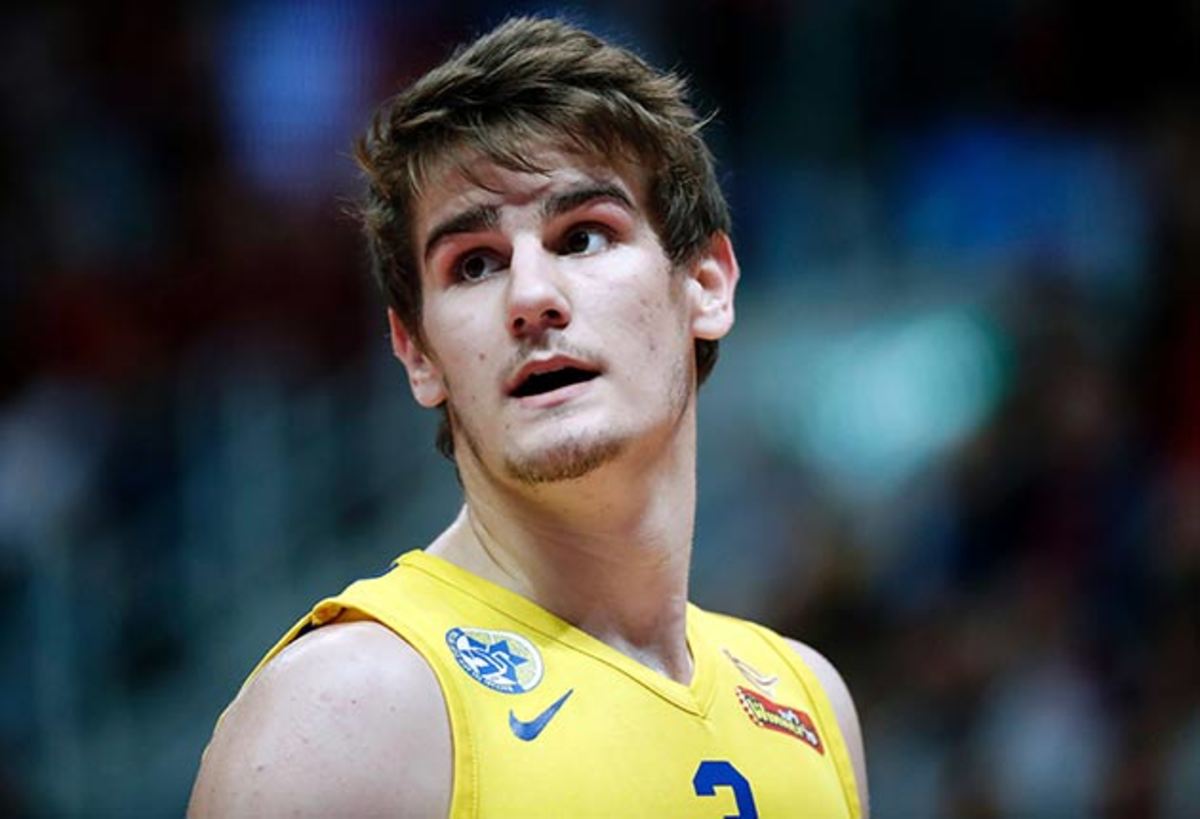
As the world turns...
We’ve already touched on a few international players on our Big Board: Dragan Bender (No. 3), Timothe Luwawu (No. 11), Furkan Korkmaz (No. 16) and Juan Hernangomez (No. 28). In keeping with recent tradition, foreign prospects will be drafted, they’ll be drafted frequently and they’ll be stashed away overseas as long as necessary. Here’s a quick rundown of some more names to file away (looking at you, Spurs fans).
Ante Zizic (6’11” C, Croatia, age 19): Garbage man who knows his role, works hard on the glass and is mature enough physically for the NBA right now. A potential first–rounder.
Ivica Zubac (7’1” C, Croatia, age 19): Not to be confused with his similarly-named countryman, Zubac was insanely productive at the 2015 FIBA U19 Worlds (33.7 PER, 17.6 points, 7.9 rebounds). Good touch, needs work defensively and as a free-throw shooter. Also a possible first-rounder.
Petr Cornelie (6’11” F/C, France, age 20): Fluid, mobile, jump-shooting big man. Still putting it all together. Late first-round caliber.
Zhou Qi (7’2” C, China, age 20): He’s enormous, he’s insanely skinny, and he could be the first Chinese-born player to appear in the NBA since Yi Jianlian dipped out.
Isaia Cordinier (6’5” G, France, age 19): Athletic scoring guard with solid intangibles, who didn’t wow at the Nike Hoop Summit. Plays in the French second division and lacks high-level experience. A definite stash candidate.
Paul Zipser (6’8” F, Germany, age 22): Advanced in age but also in experience at the international and club levels. Solid shooter and willing role player, also a bit of a tweener forward.
The Chukwudiebere Maduabum zone
This draft could include international players with some truly amazing names. This category includes: Romaric Belemene (Congo), Diego Flaccadori (Italy), Ludvig Hakanson (Sweden), Vincent Kesteloot (Belgium), Luc Loubaki (France), Berk Ugurlu (Turkey) and the possibly-immortal Guerschon Yabusele (France).
Portsmouth Invitational takeaways
The annual Portsmouth tourney takes 64 college seniors and fringe draftees, splits them up into eight teams of eight, and lets them play three games each in front of NBA evaluators. Teams schedule scouting meetings around it. Players have a chance to solidify their stock, generally as second-rounders, and a handful will earn invitations to the combine.
There will always be a contrarian camp that argues for the value of an extended college career, but it can’t be stressed enough how much NBA teams truly value that age curve, even when throwing darts late in the draft. Portsmouth, counting Jimmy Butler and Jeremy Lin among recent alums—and dating further back, players including Scottie Pippen, John Stockton and Ben Wallace—helps older prospects increase their chances to beat the odds.
• MORE NBA: Ingram unseats Simmons in NBA Mock Draft 2.0.
This year’s MVP was Iona guard A.J. English, who averaged 17.3 points and 6.7 assists, shot 11-of-17 on threes and stands 6’4” with a 6’9” wingspan. The catch? He turns 24 in July, which effectively makes him a dinosaur. Texas big man Prince Ibeh left with some awesome physical measurables (6’11”, 7’5 1/2” wingspan) despite a late-blooming, mostly negligible college career. Michigan State’s Bryn Forbes led the PIT in scoring—chucking 30 threes and hitting at a 43% clip—but he’s an undersized two-guard, and turns 23 in July. Arizona forward Ryan Anderson was the most productive post (18 points, 12 rebounds per game). Florida’s Dorian Finney-Smith and Oklahoma’s Isaiah Cousins have second-round intrigue.
GALLERY: The NBA's No. 1 picks in the lottery era
The NBA's No. 1 Draft Picks in the Lottery Era
1985: Patrick Ewing
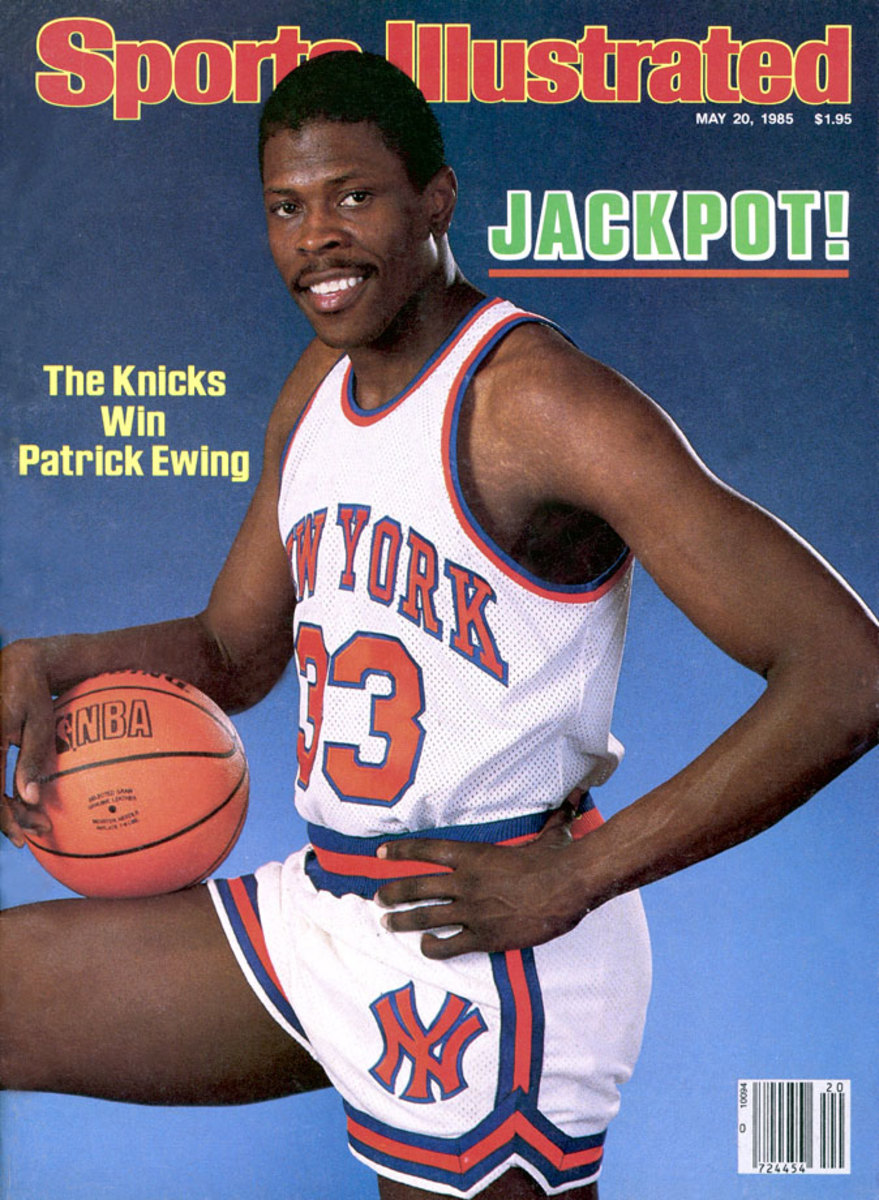
1986: Brad Daugherty
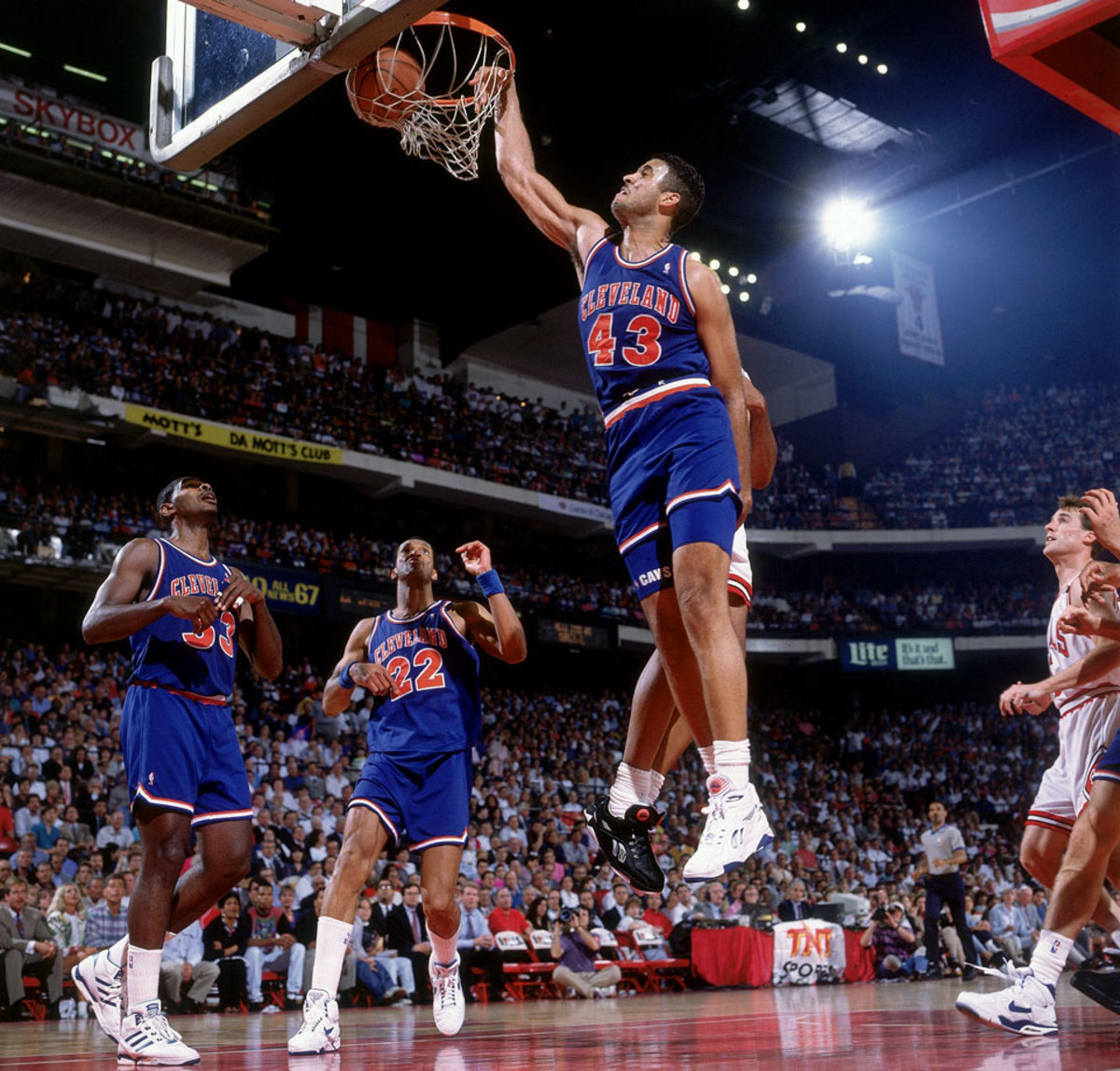
1987: David Robinson
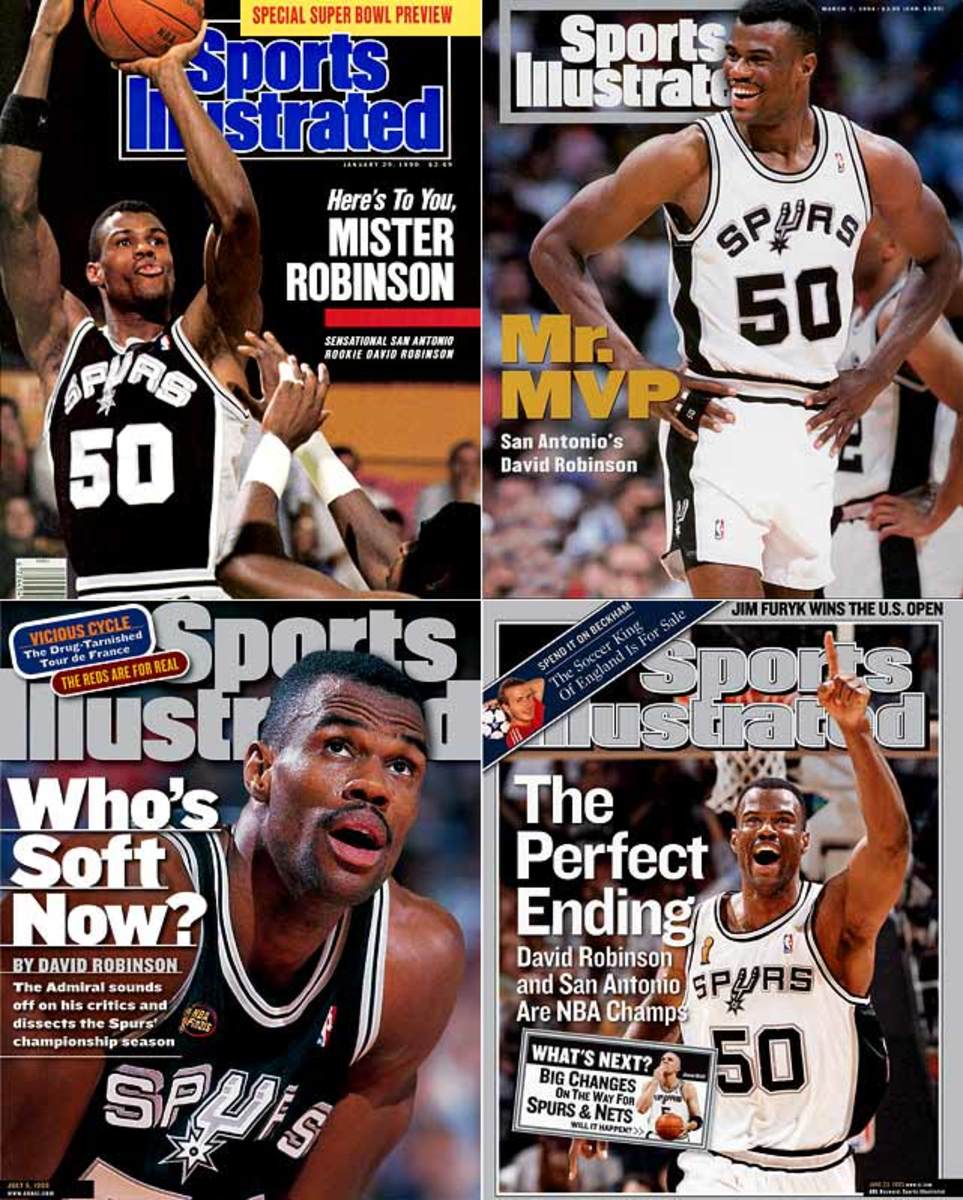
1988: Danny Manning
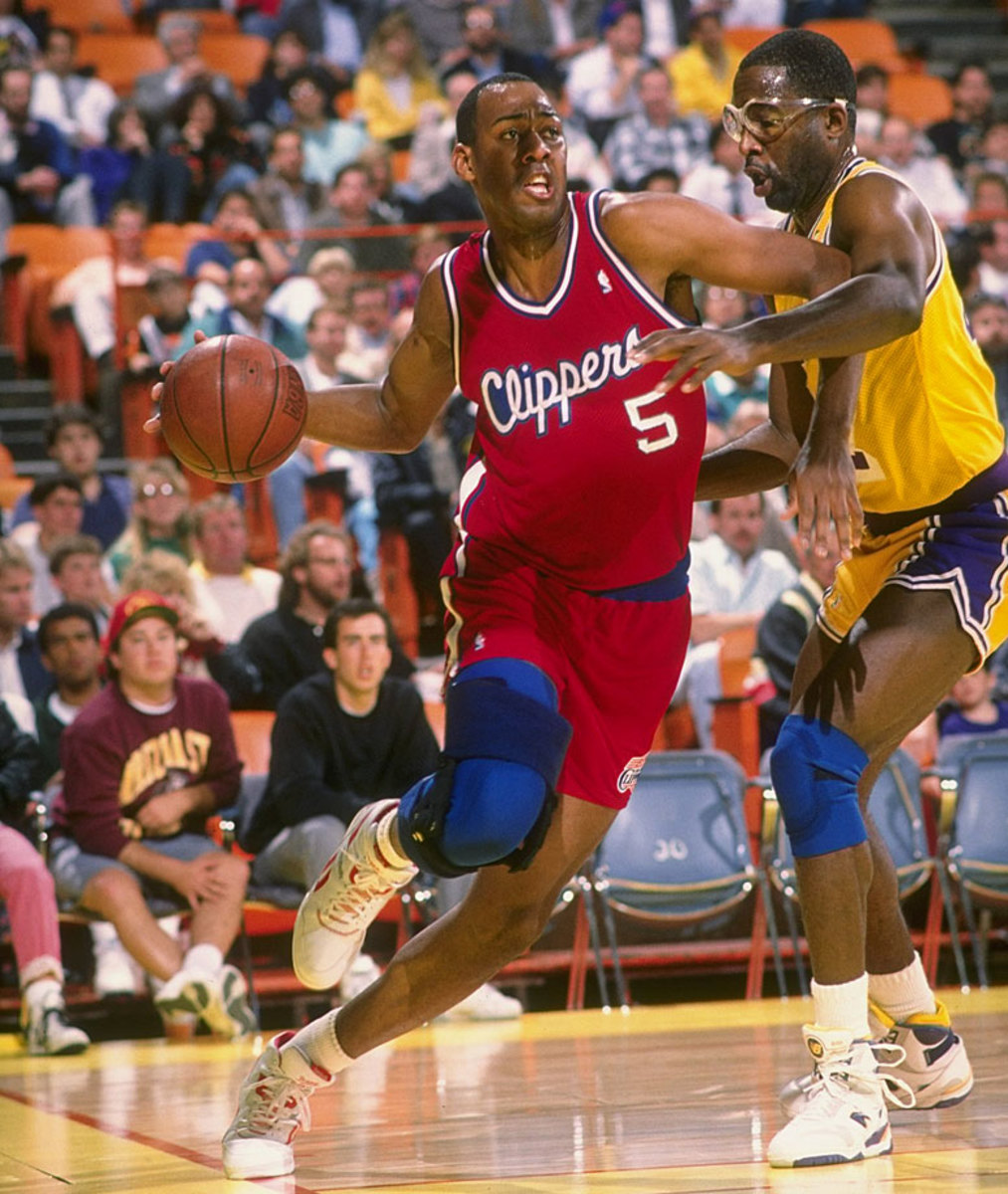
1989: Pervis Ellison
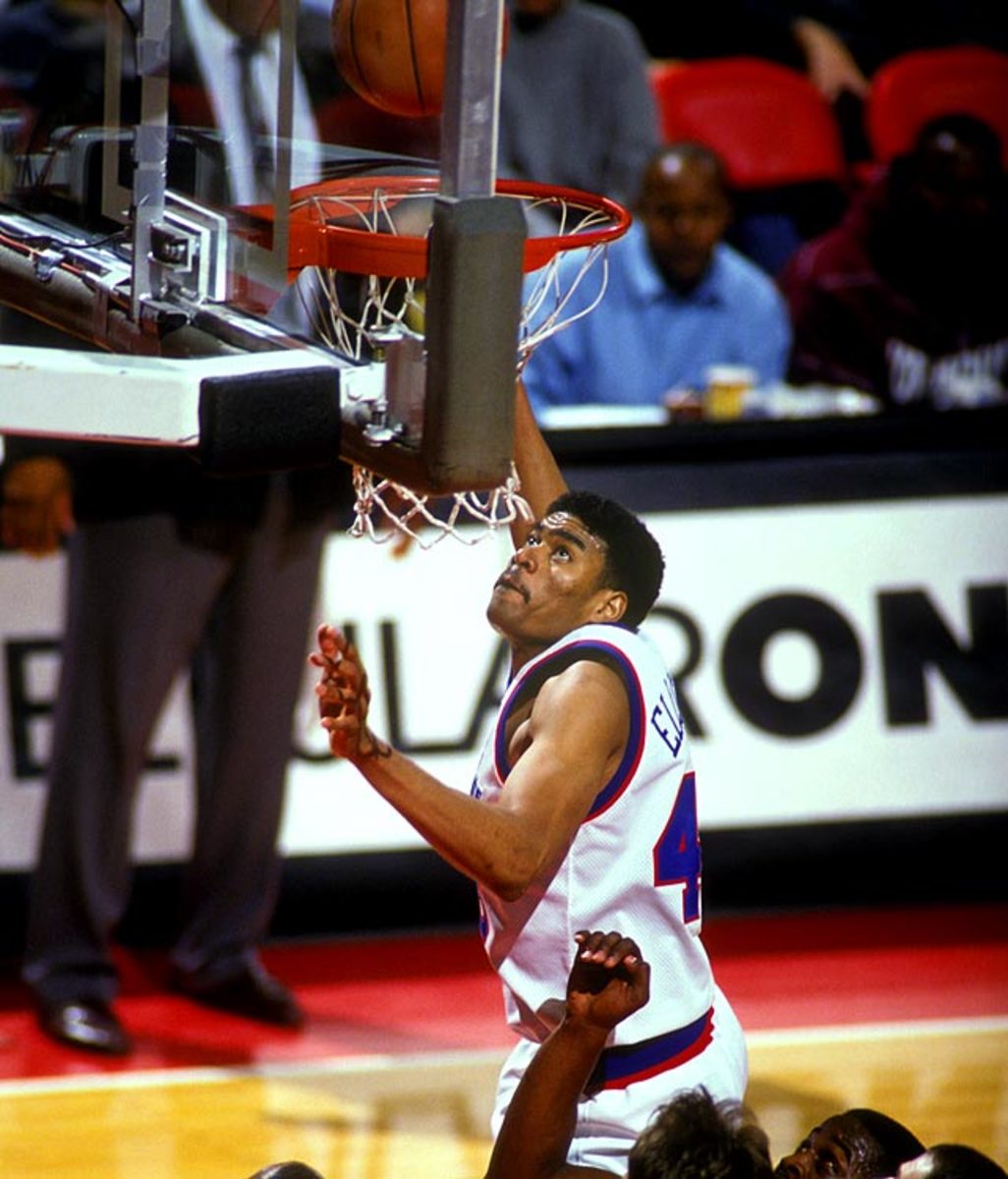
1990: Derrick Coleman
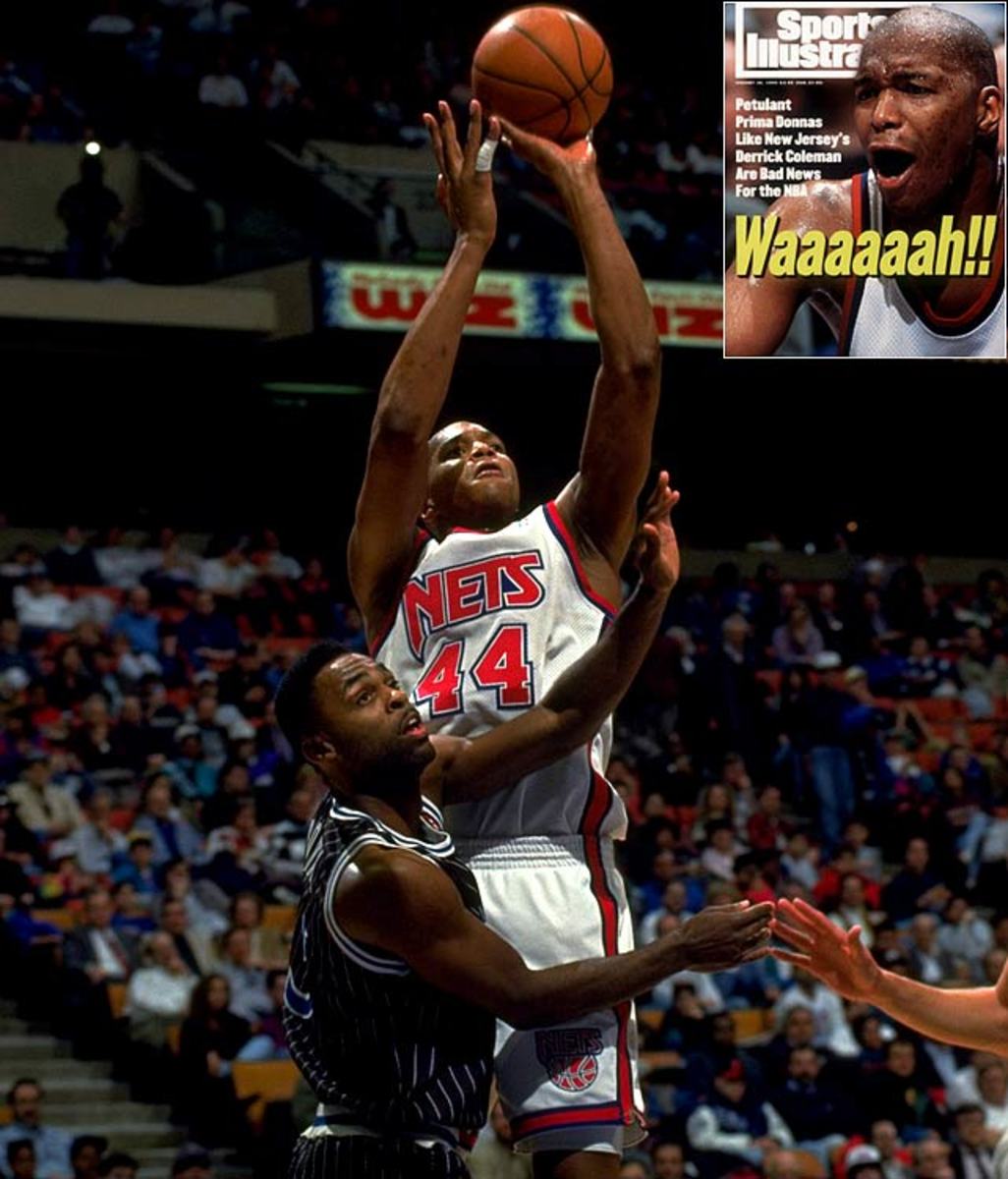
New Jersey Nets
1991: Larry Johnson
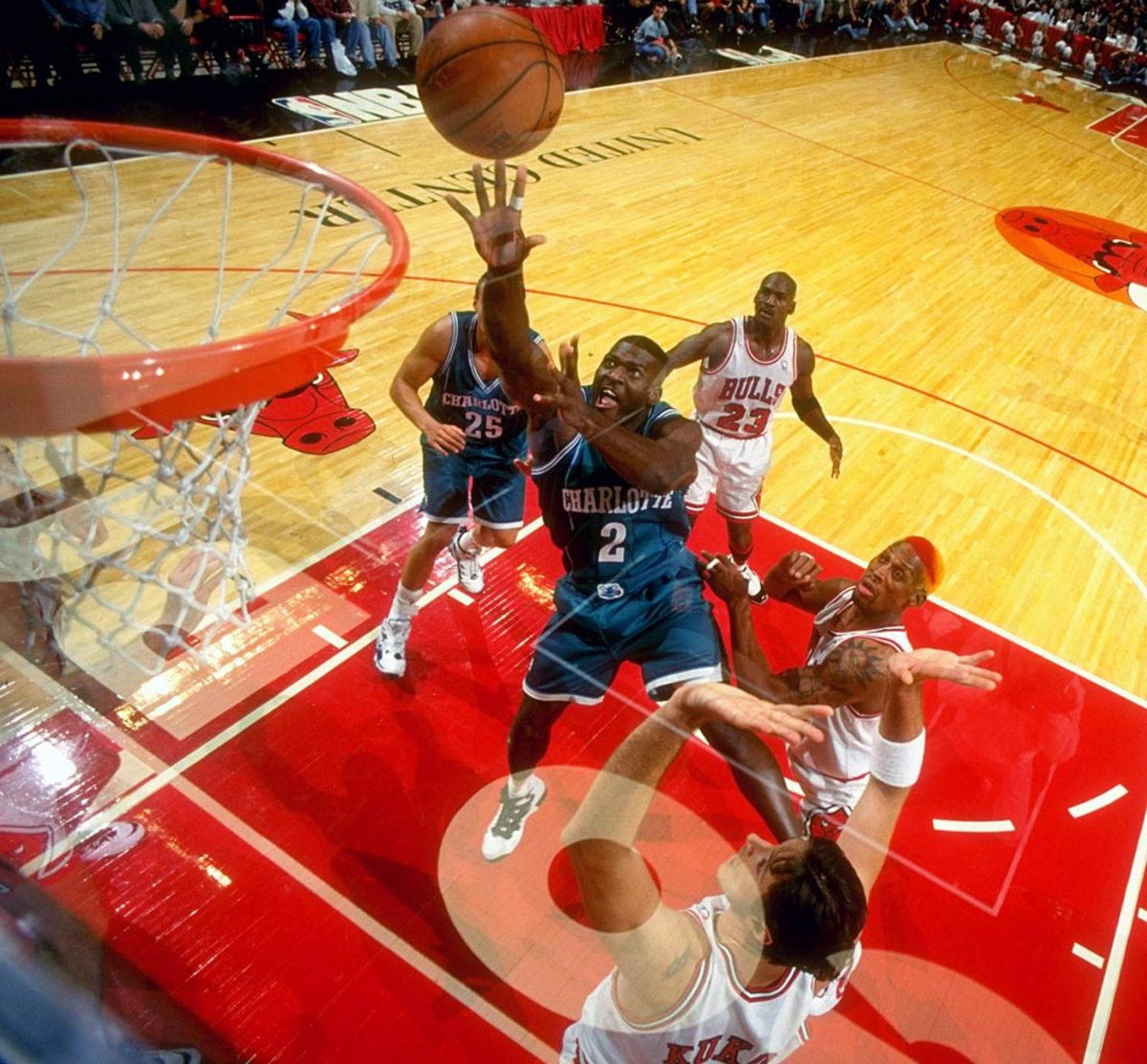
1992: Shaquille O'Neal
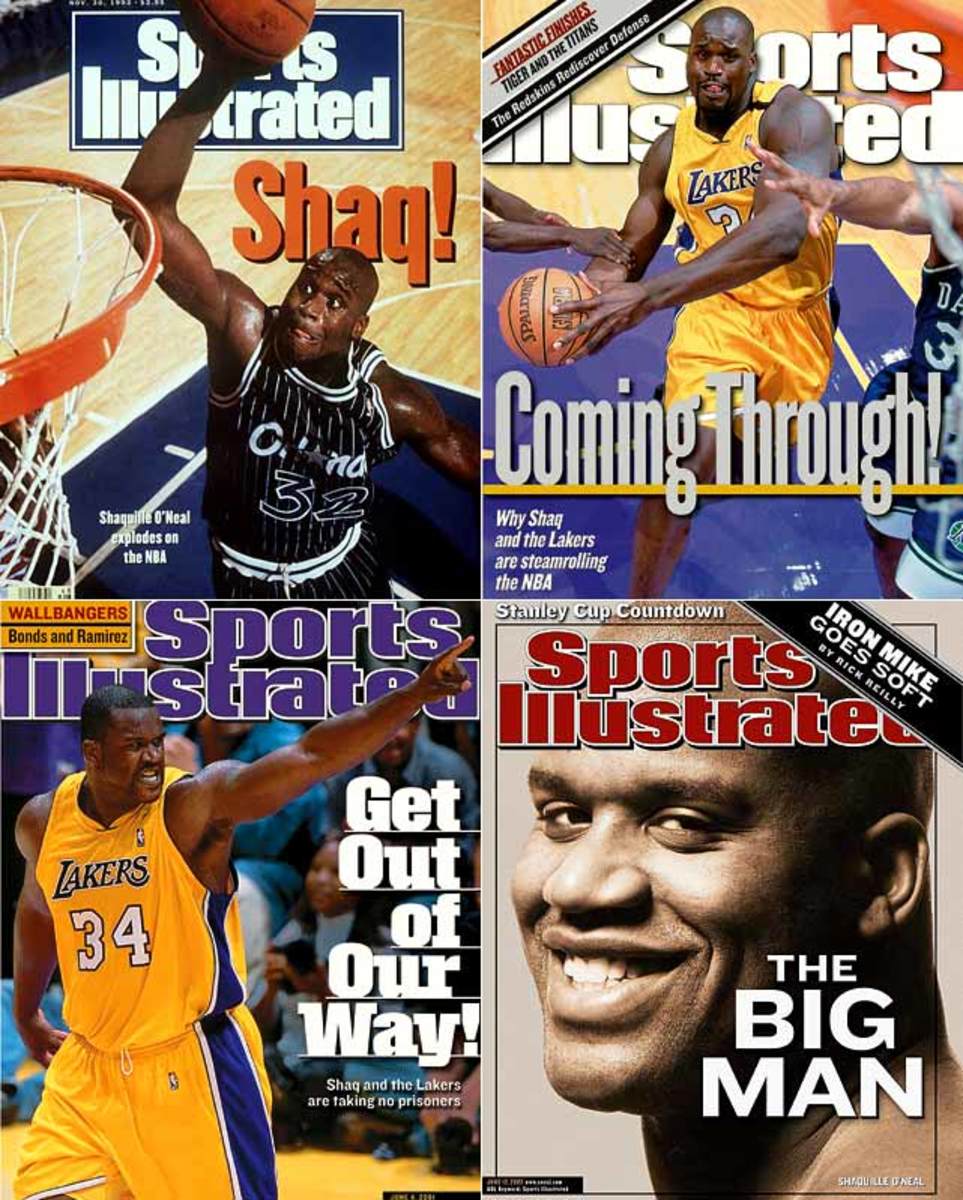
1993: Chris Webber
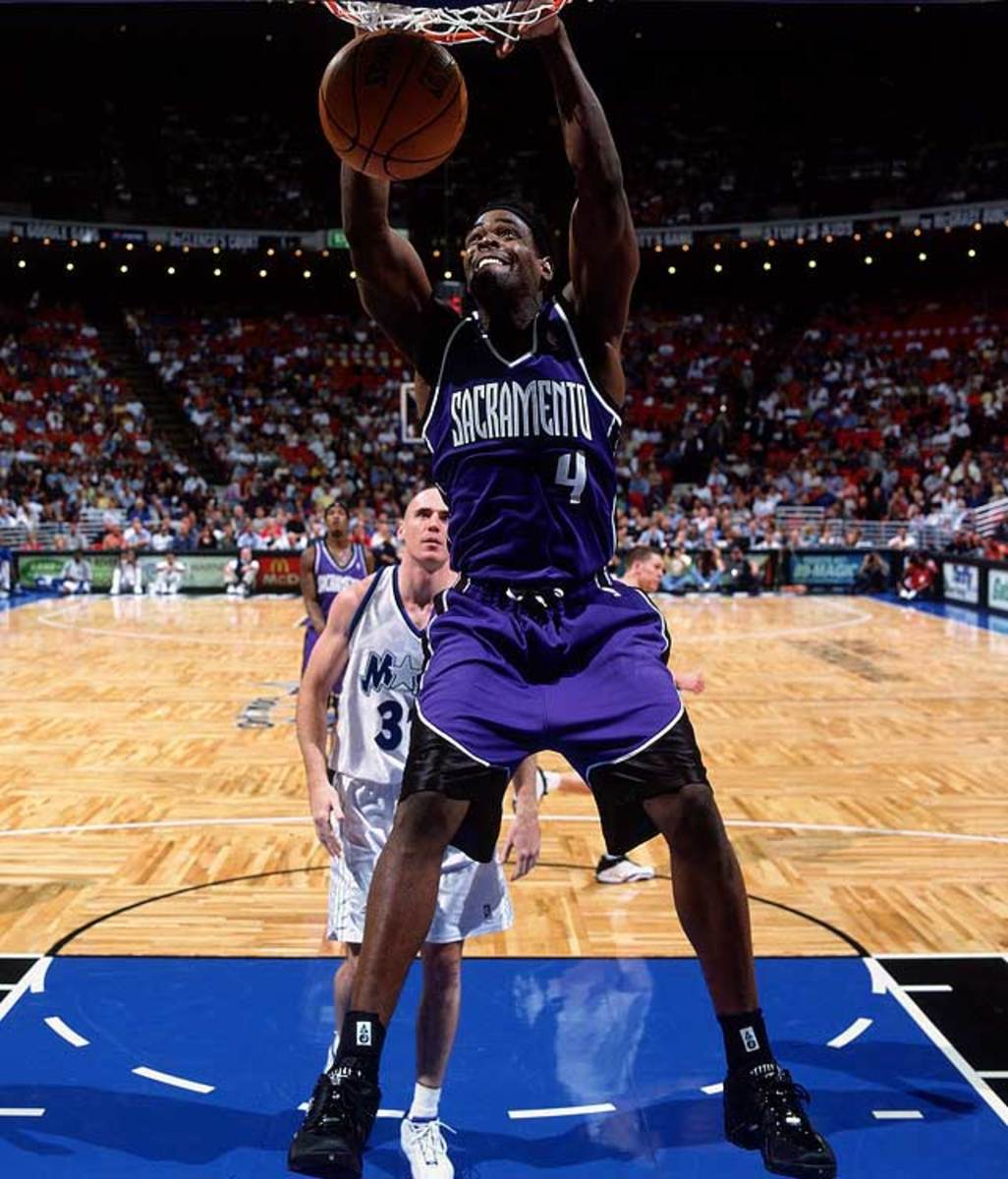
Orlando Magic
1994: Glenn Robinson
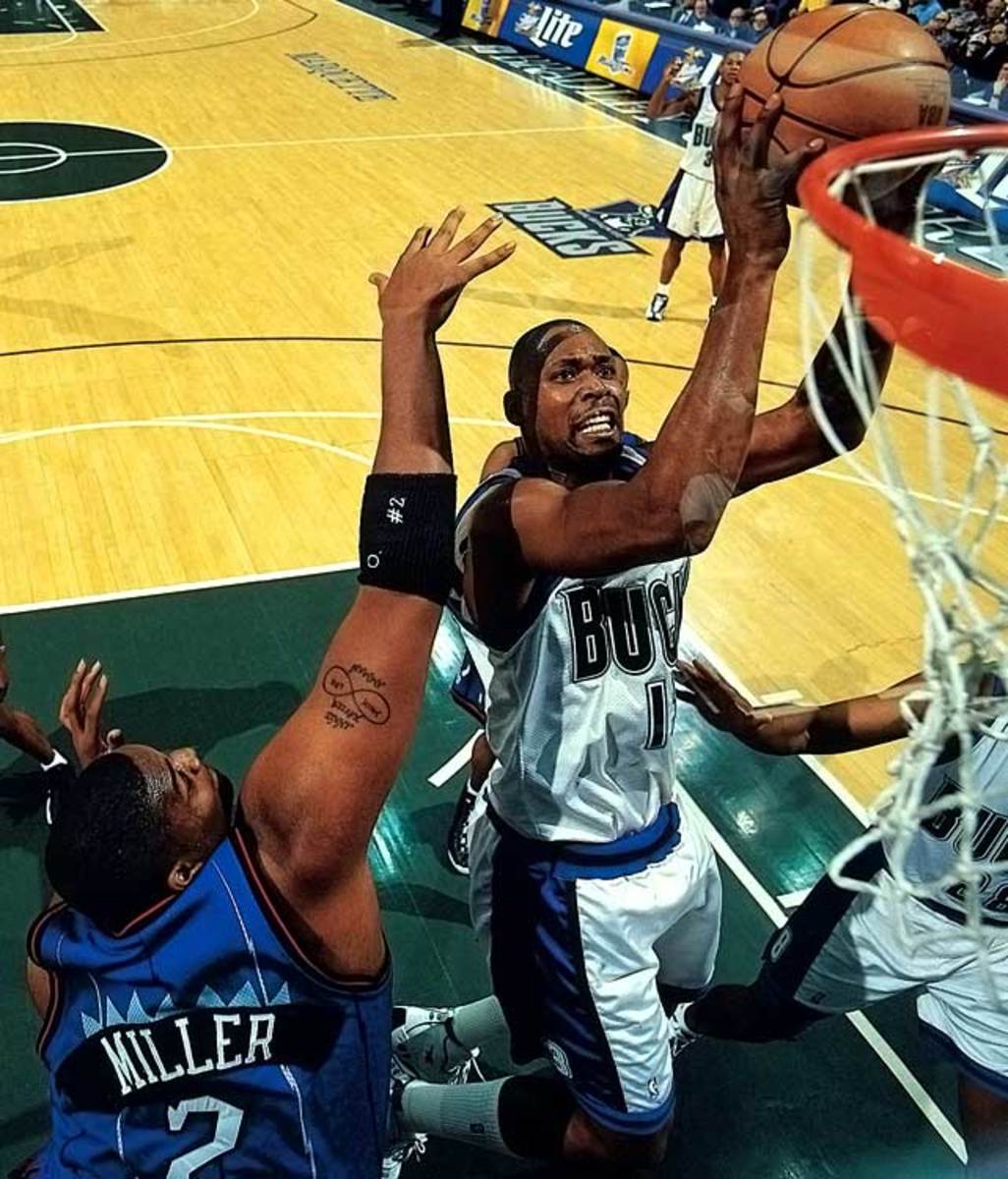
1995: Joe Smith
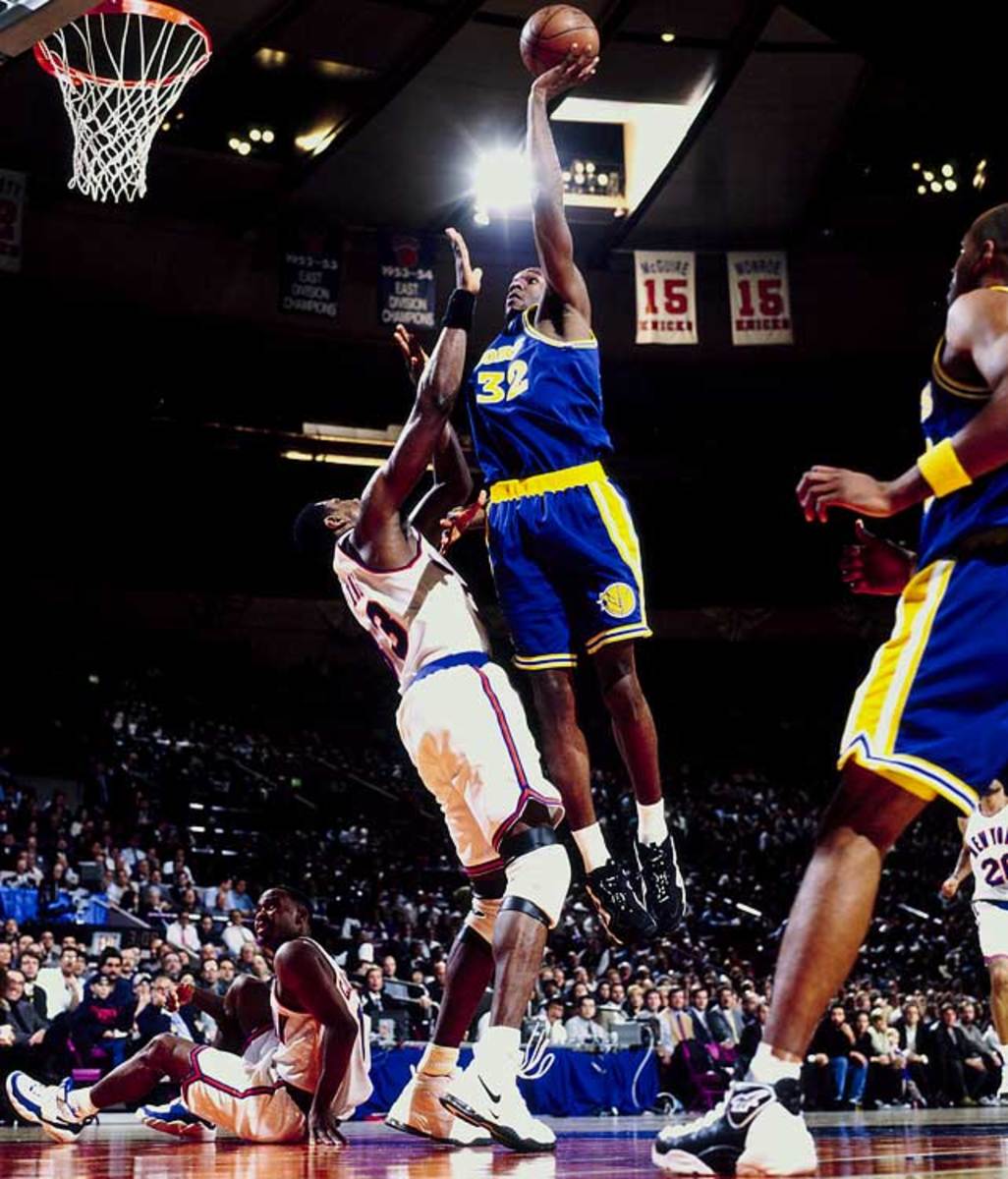
1996: Allen Iverson
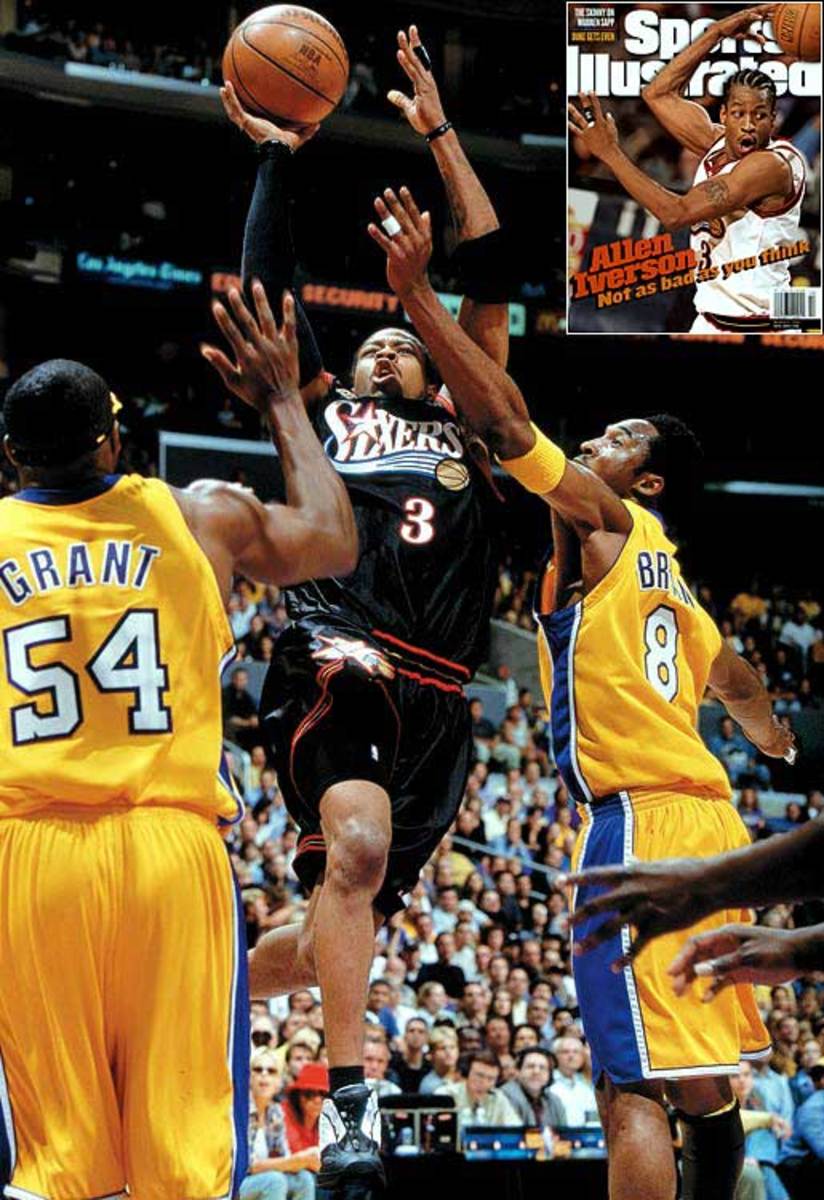
1997: Tim Duncan
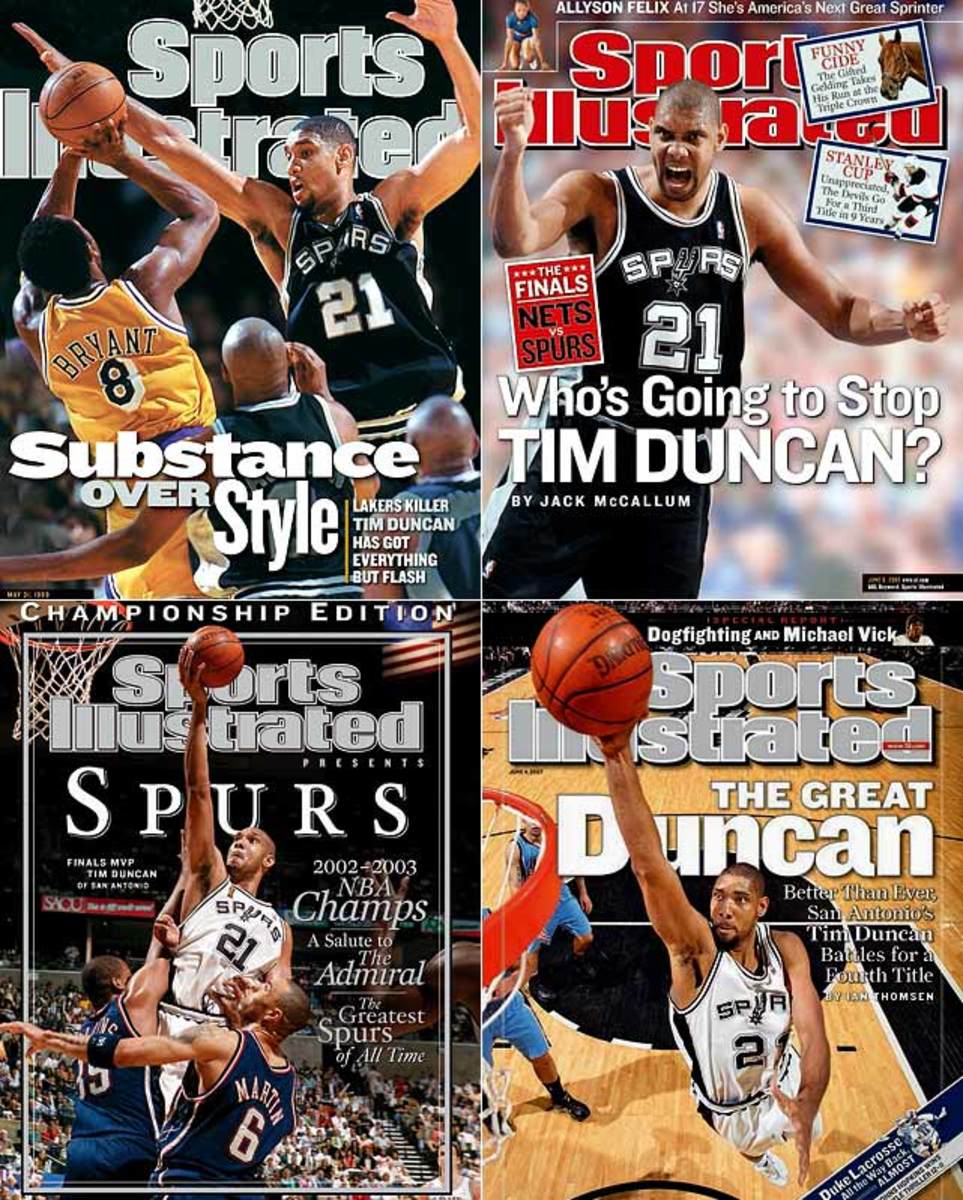
San Antonio Spurs
1998: Michael Olowokandi
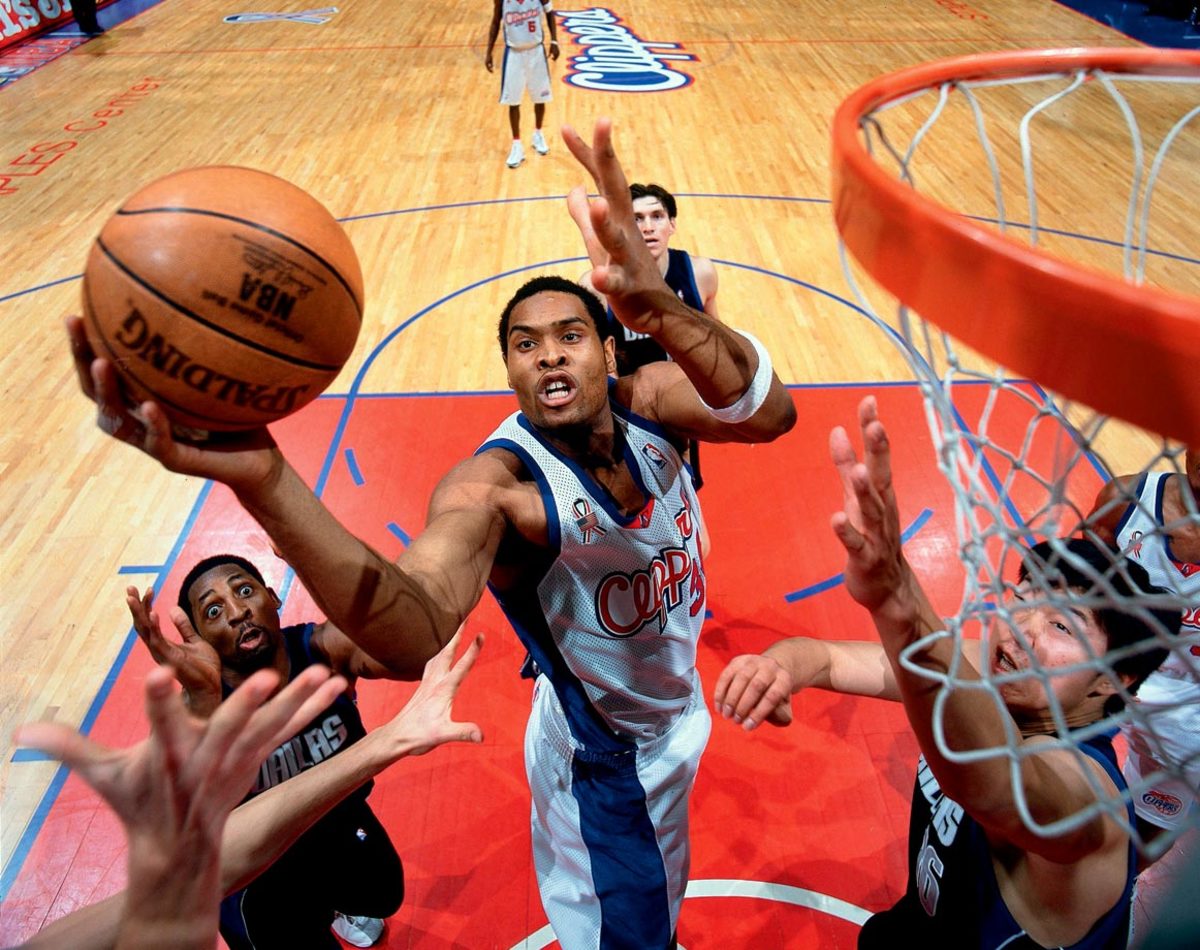
Milwaukee Bucks
1999: Elton Brand
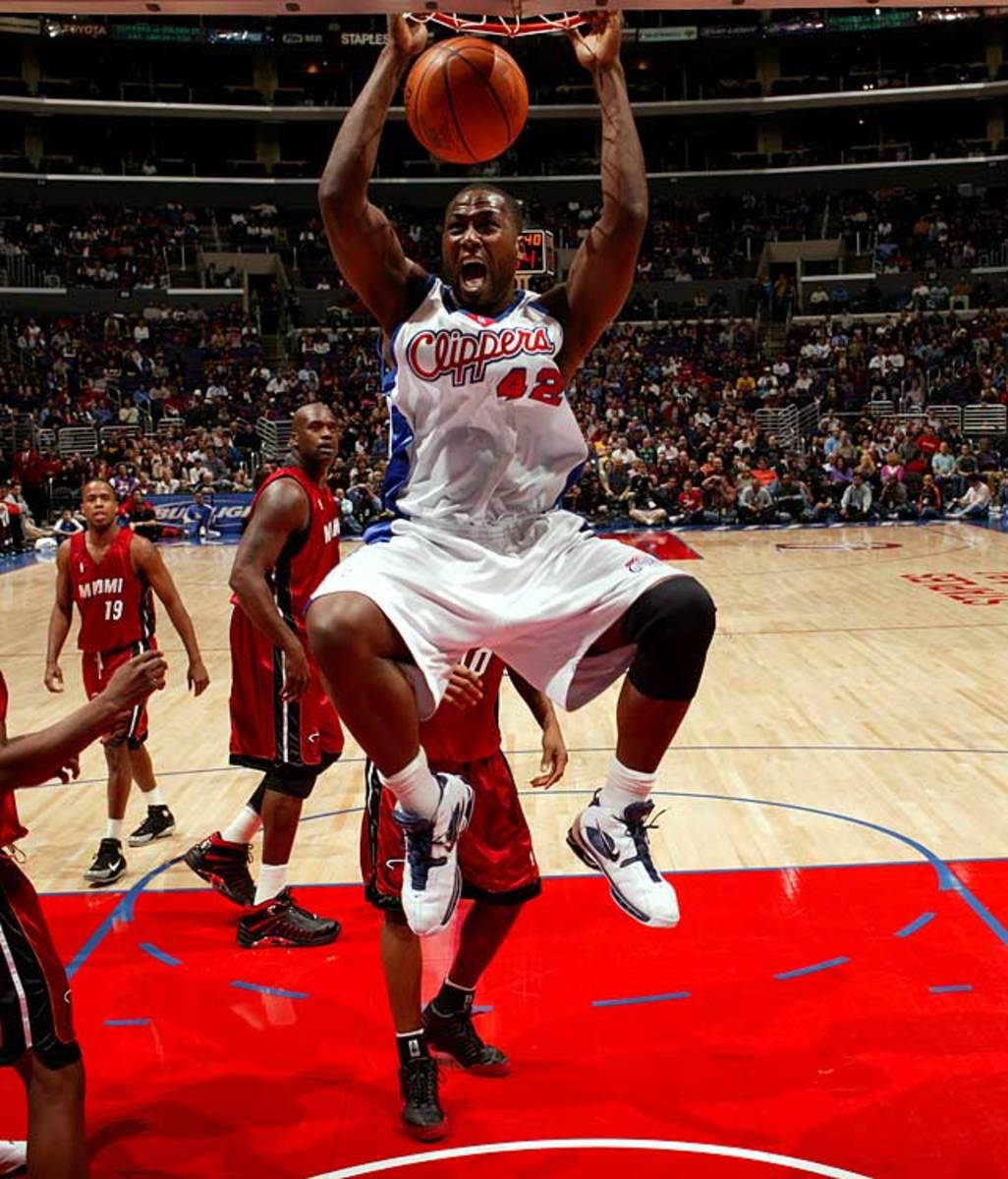
2000: Kenyon Martin
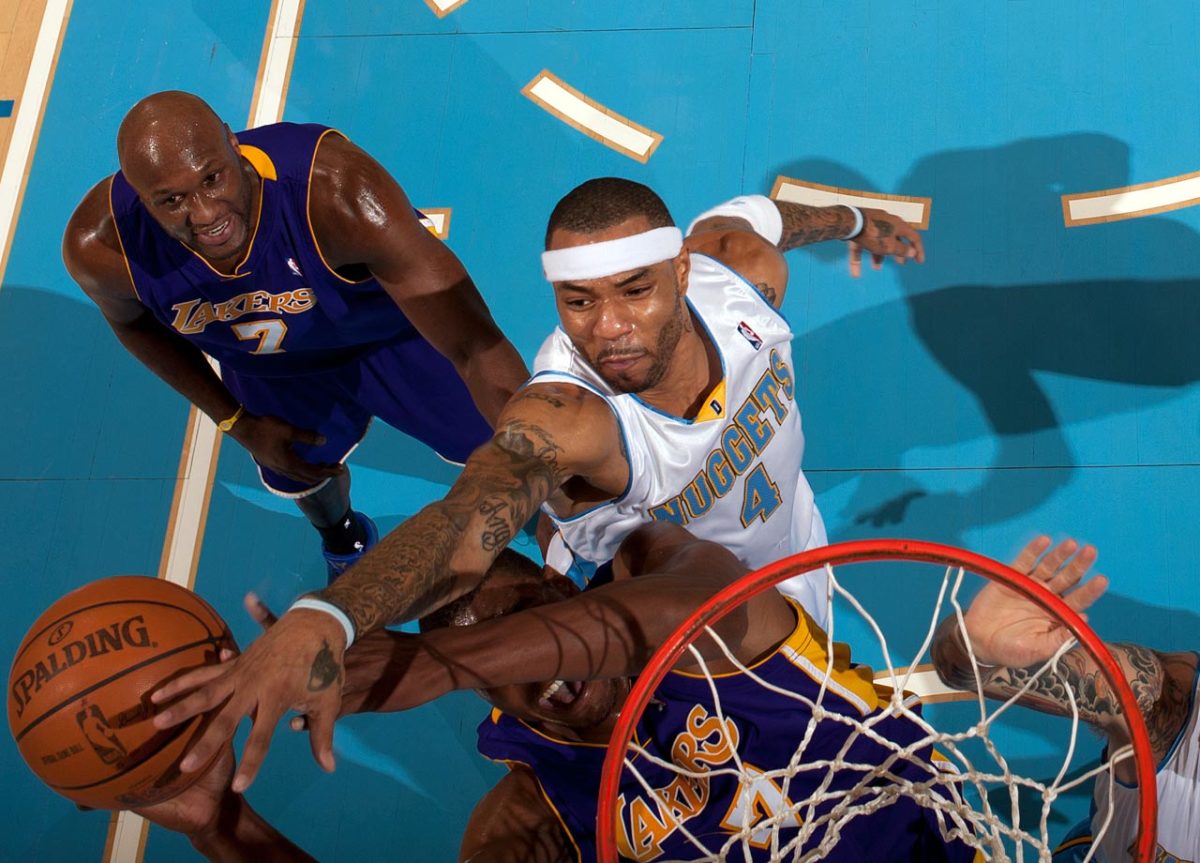
New Jersey Nets
2001: Kwame Brown
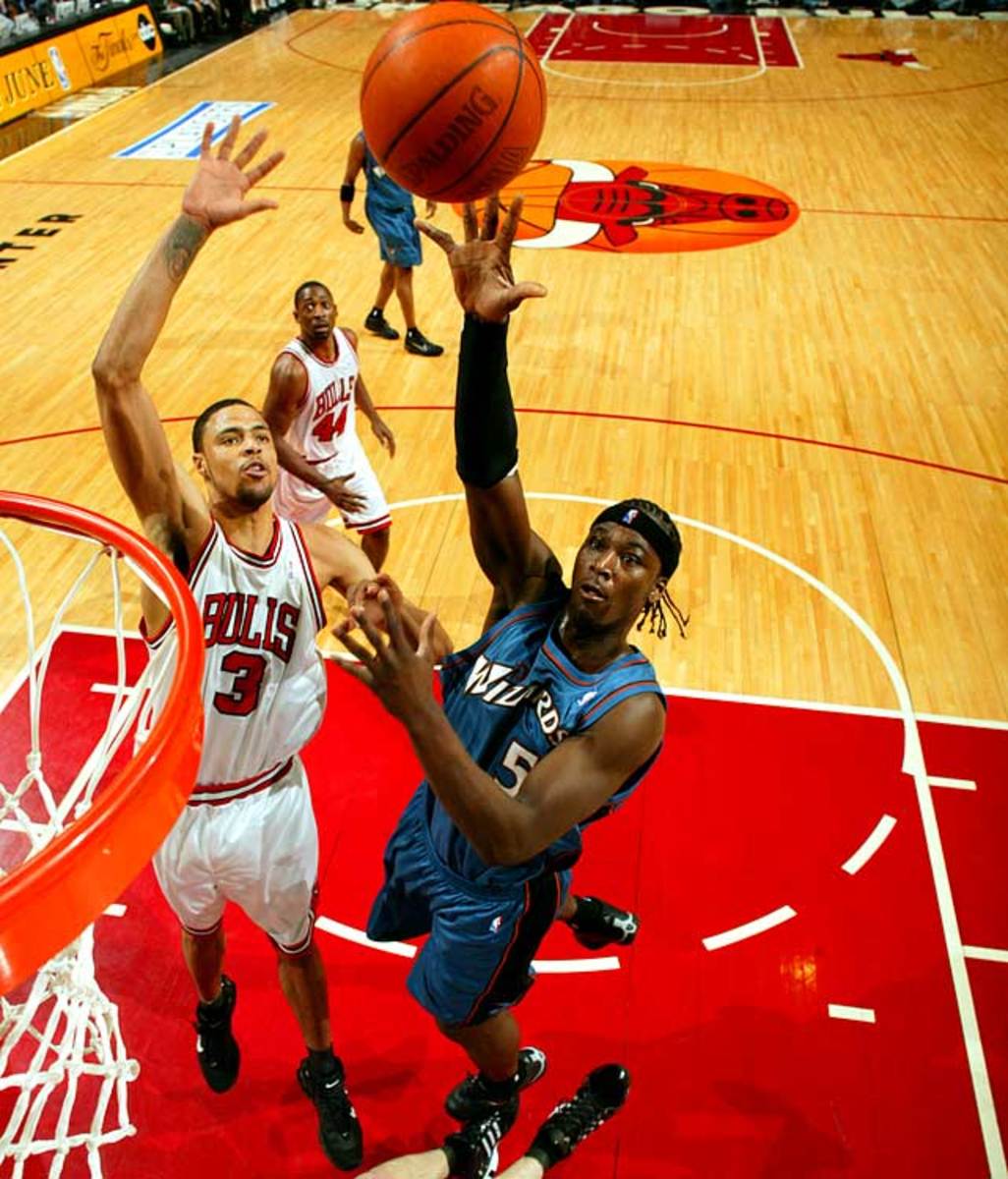
2002: Yao Ming
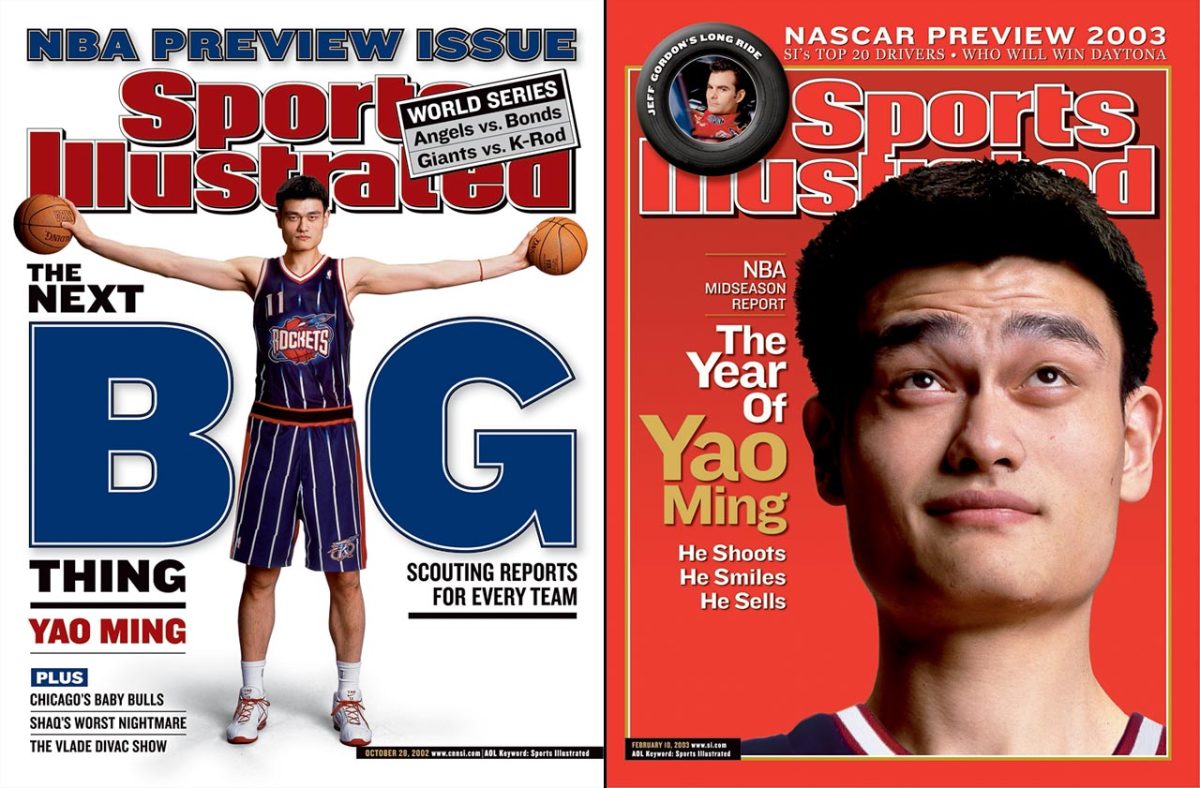
2003: LeBron James
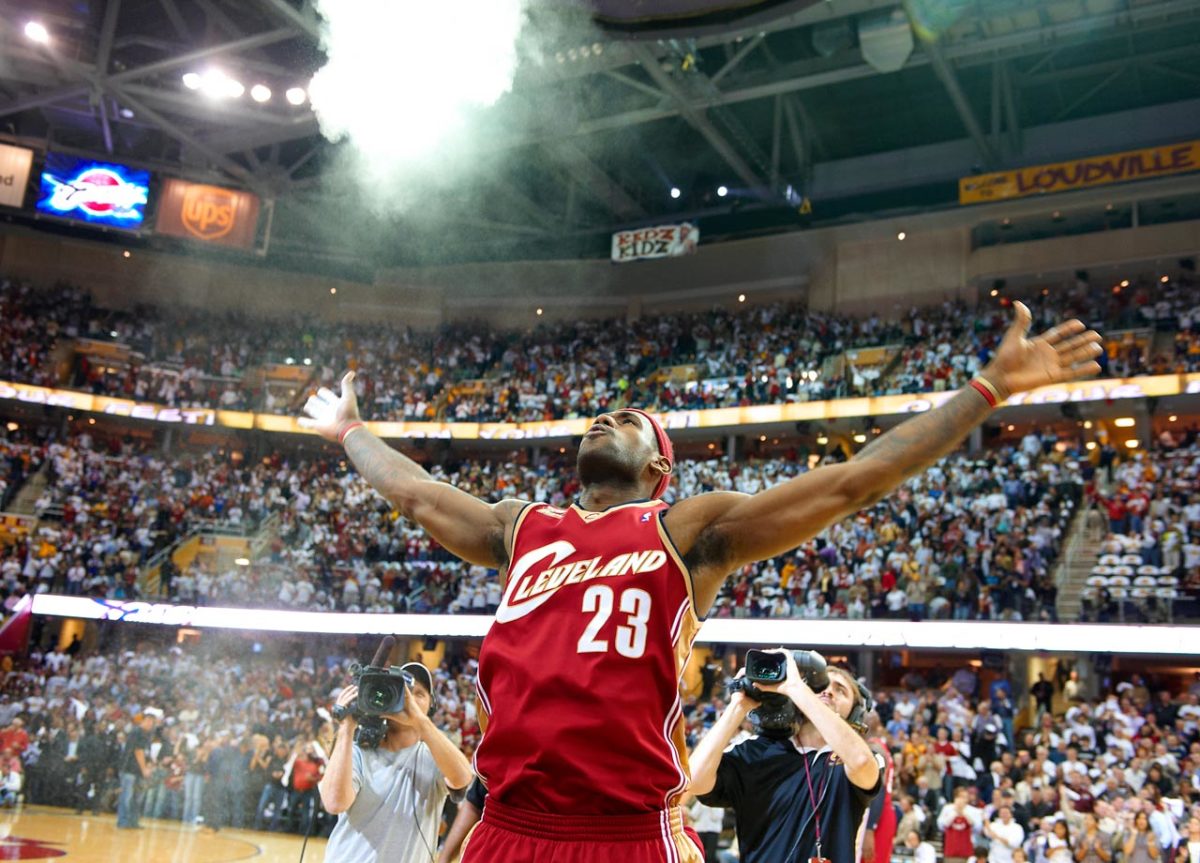
Cleveland Cavaliers
2004: Dwight Howard
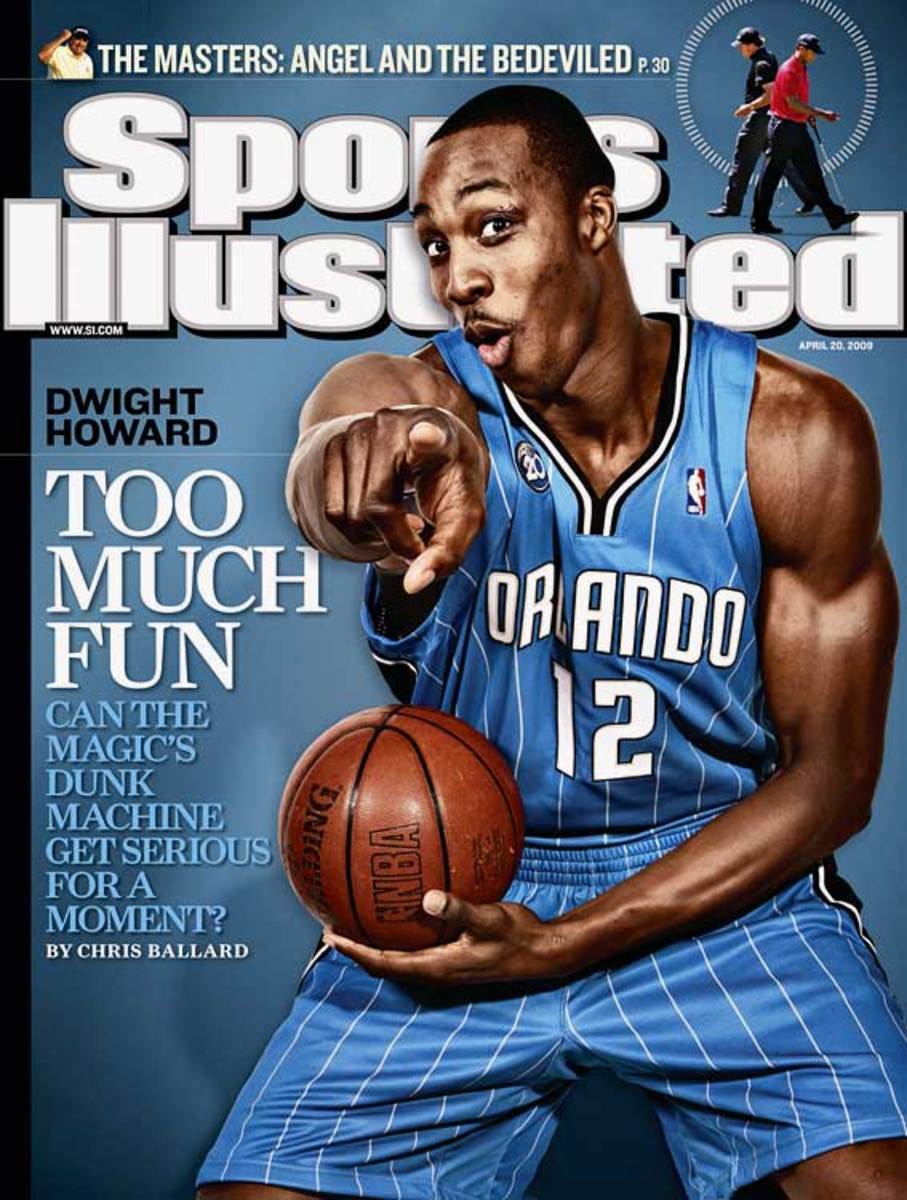
Orlando Magic
2005: Andrew Bogut
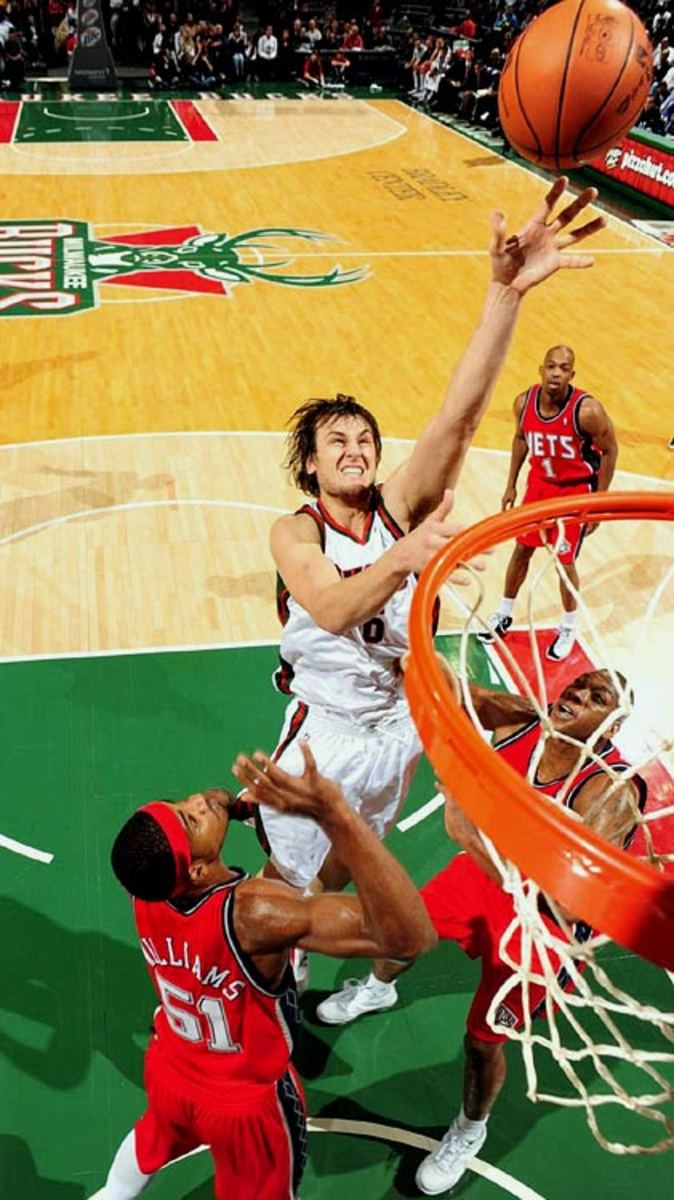
Milwaukee Bucks
2006: Andrea Bargnani
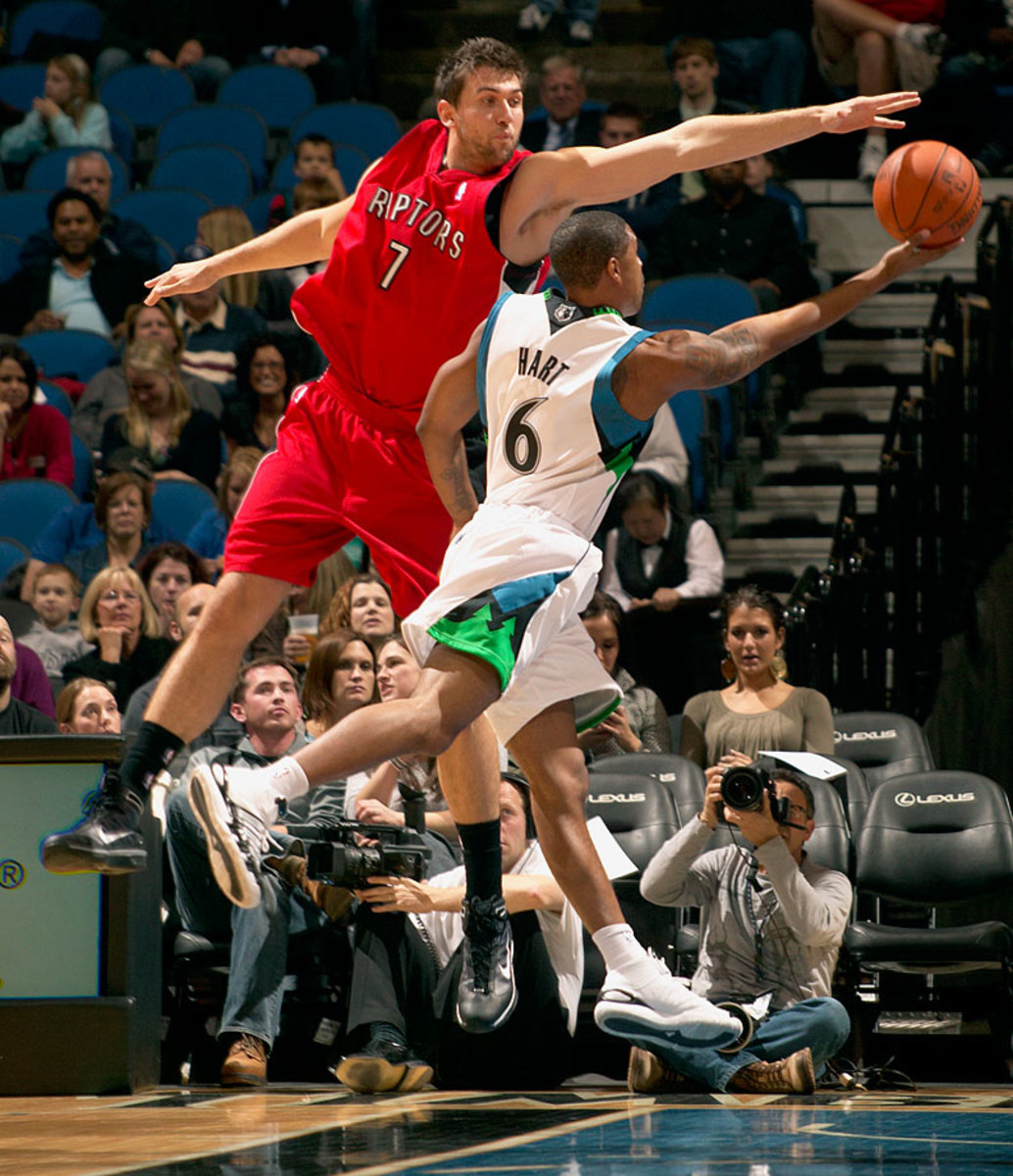
2007: Greg Oden
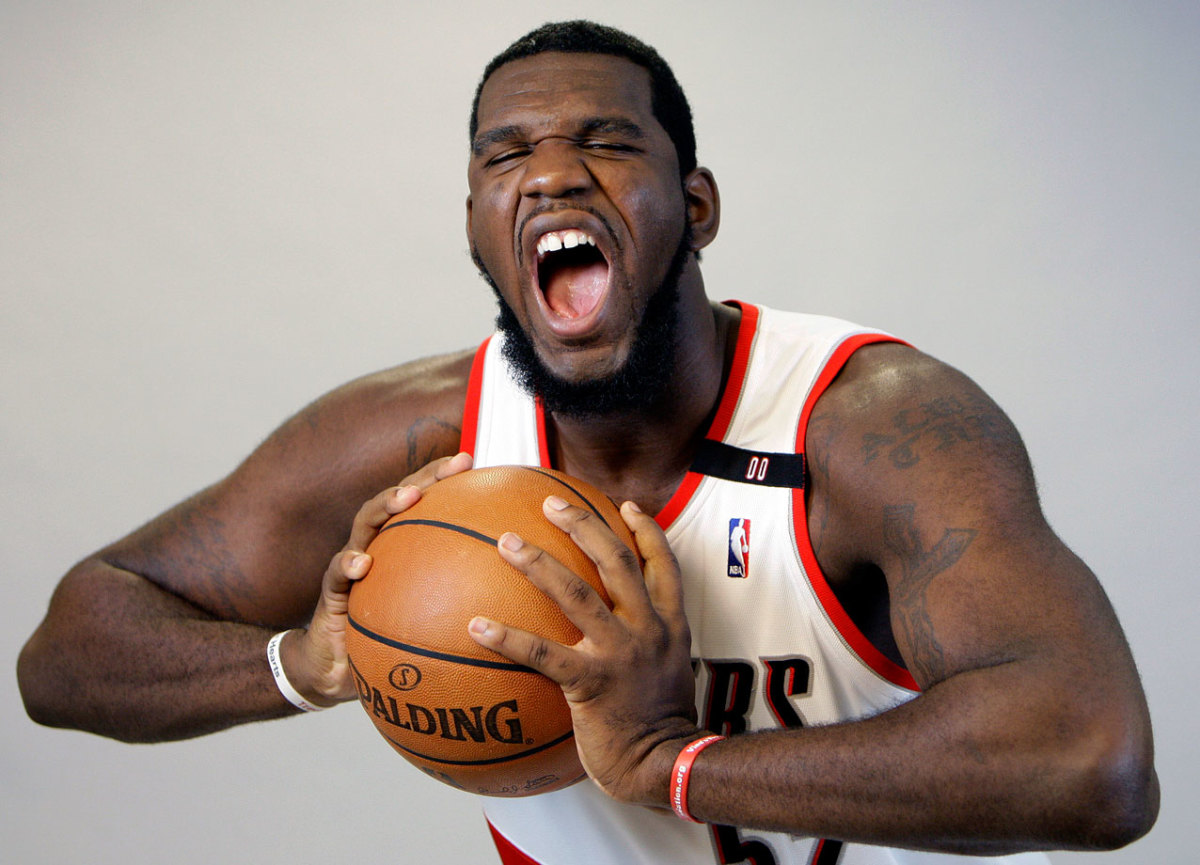
2008: Derrick Rose
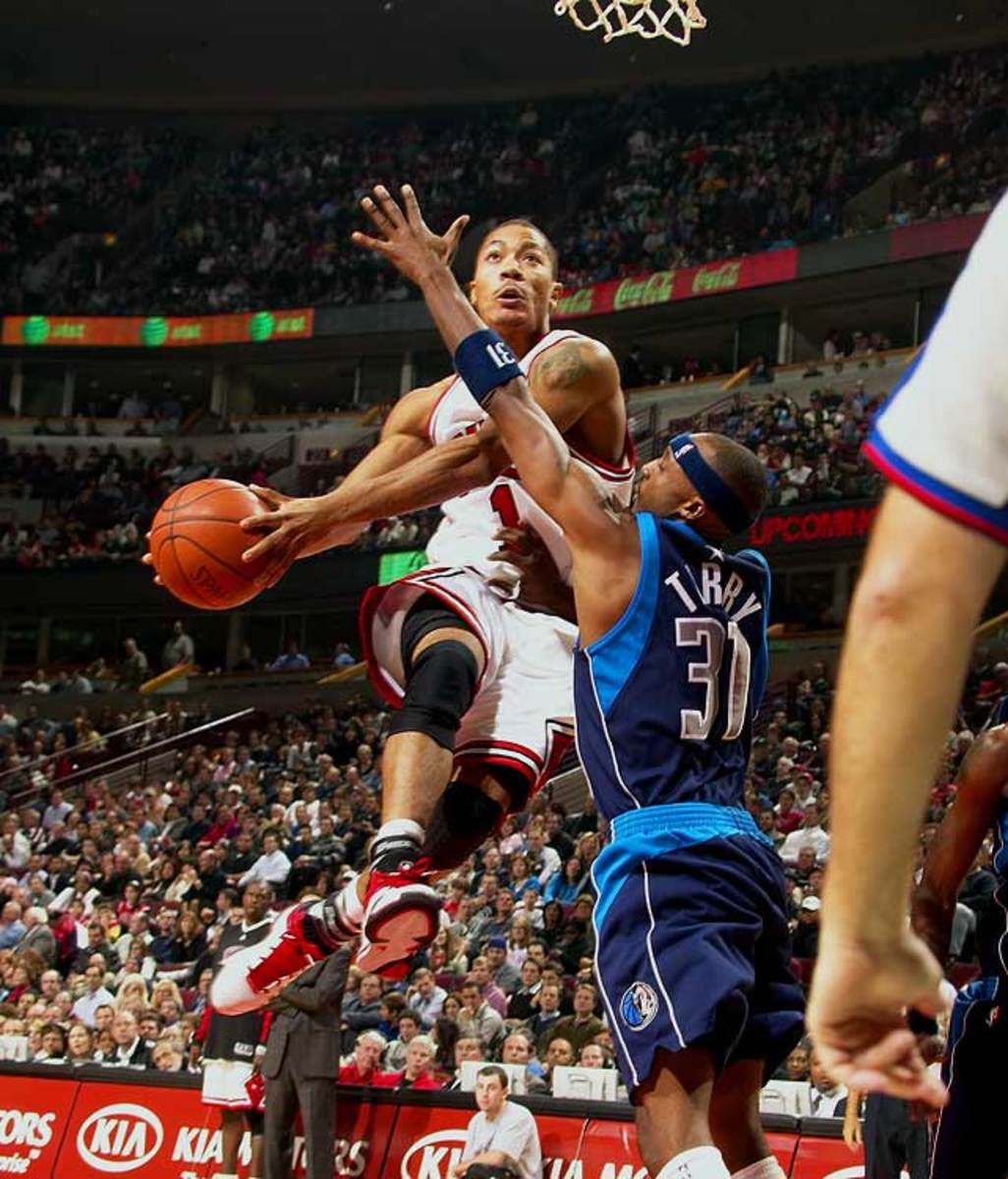
Chicago Bulls
2009: Blake Griffin
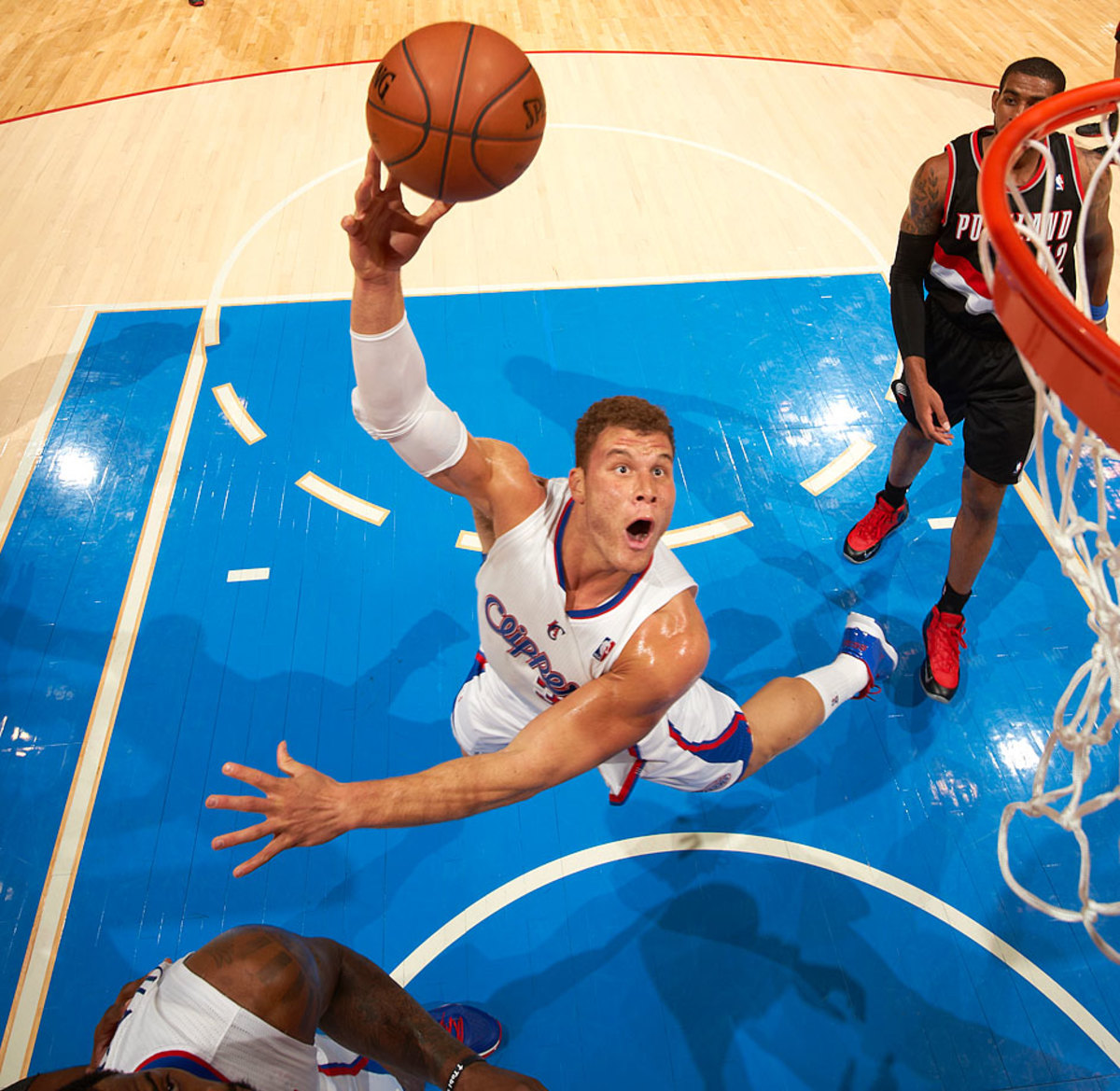
Los Angeles Clippers
2010: John Wall
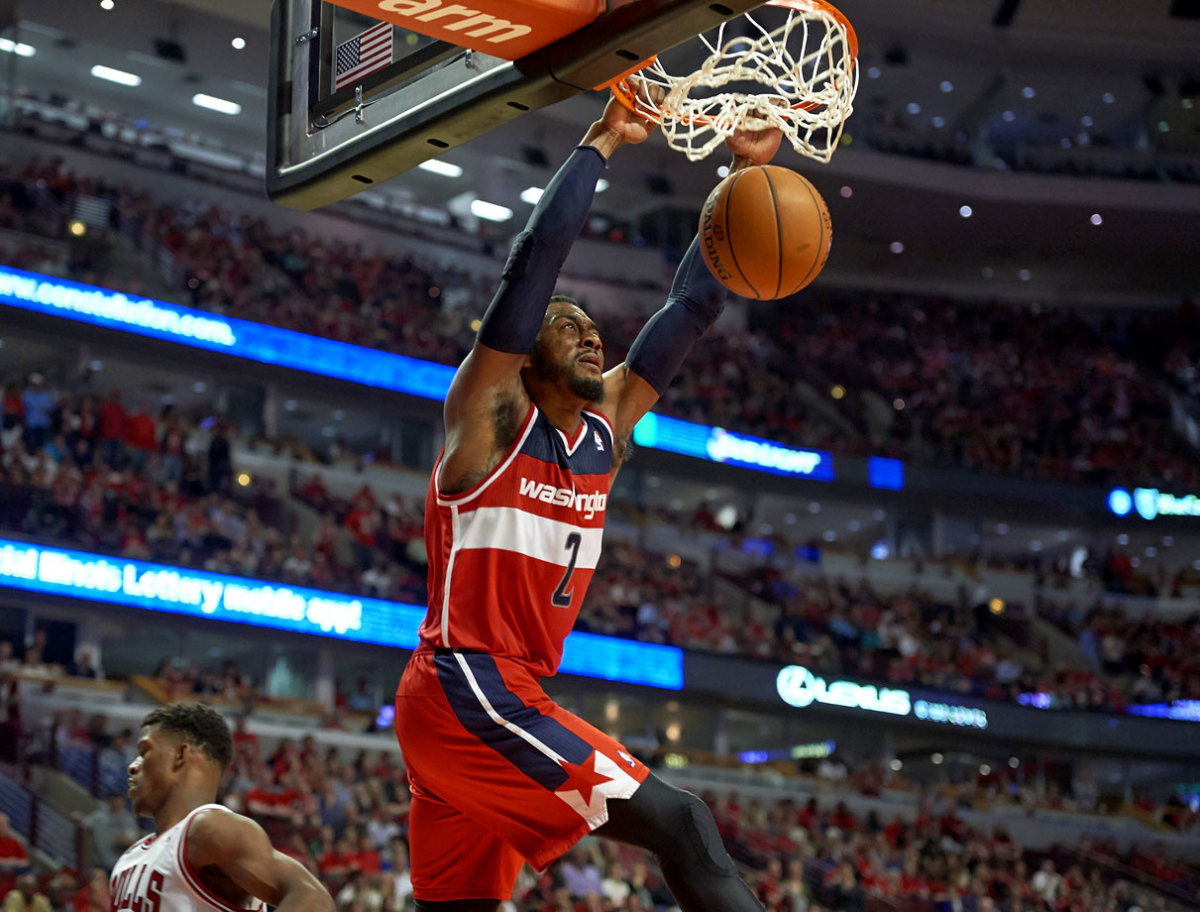
Washington Wizards
2011: Kyrie Irving
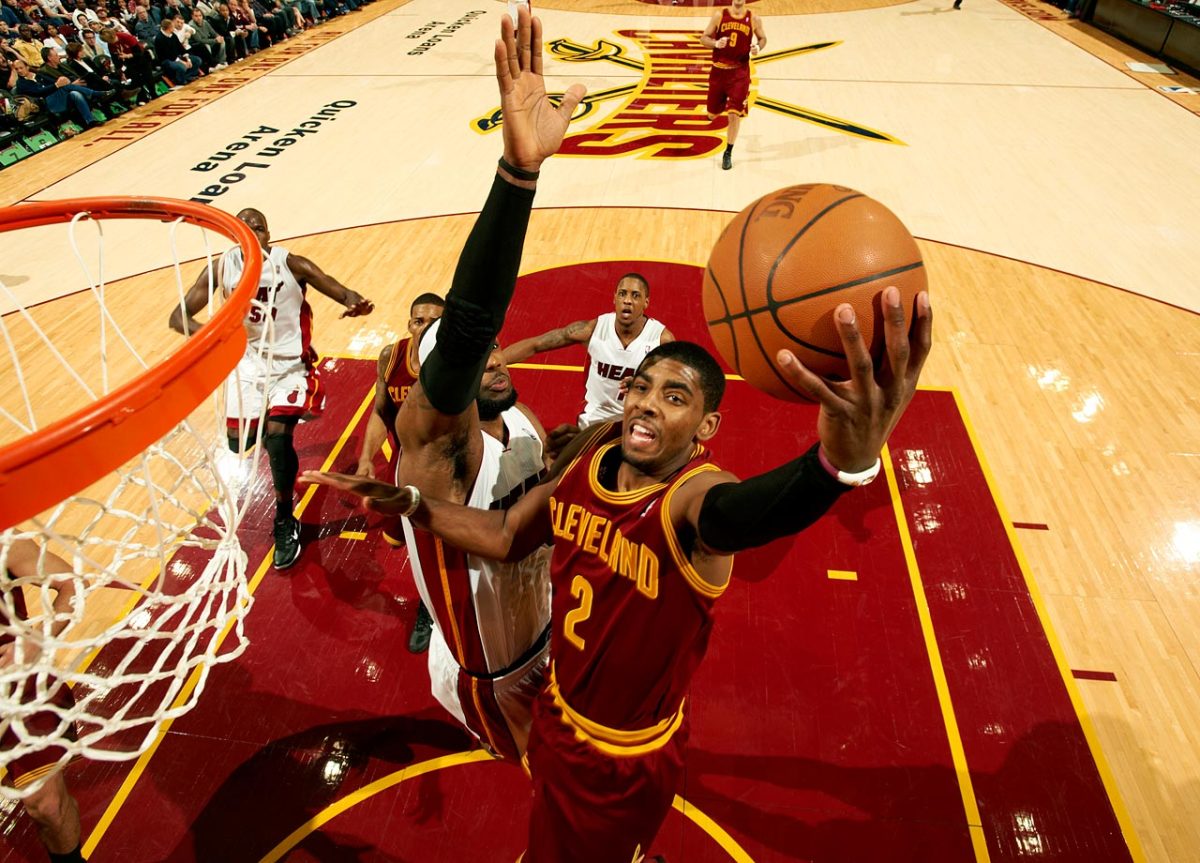
Cleveland Cavaliers
2012: Anthony Davis
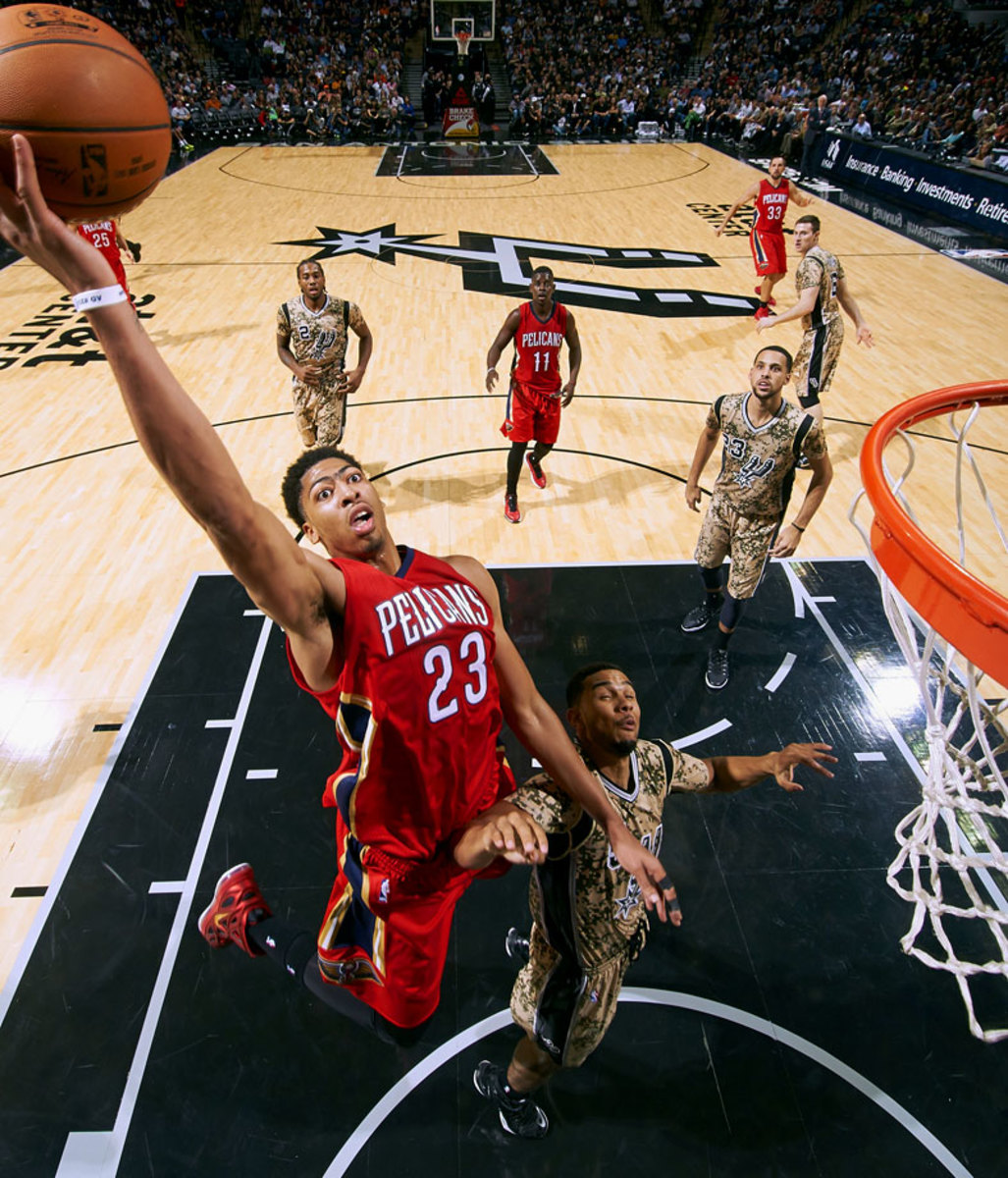
New Orleans Hornets
2013: Anthony Bennett
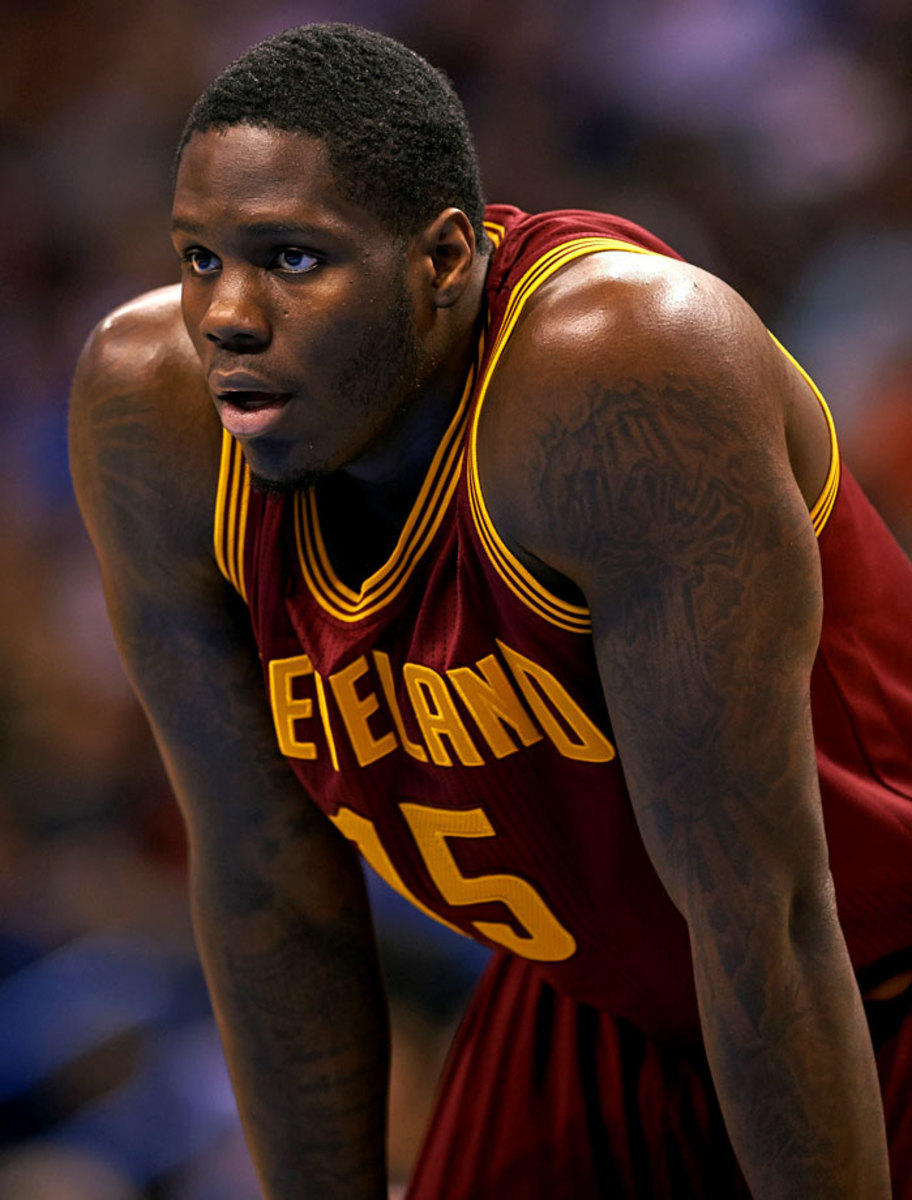
Cleveland Cavaliers
2014: Andrew Wiggins
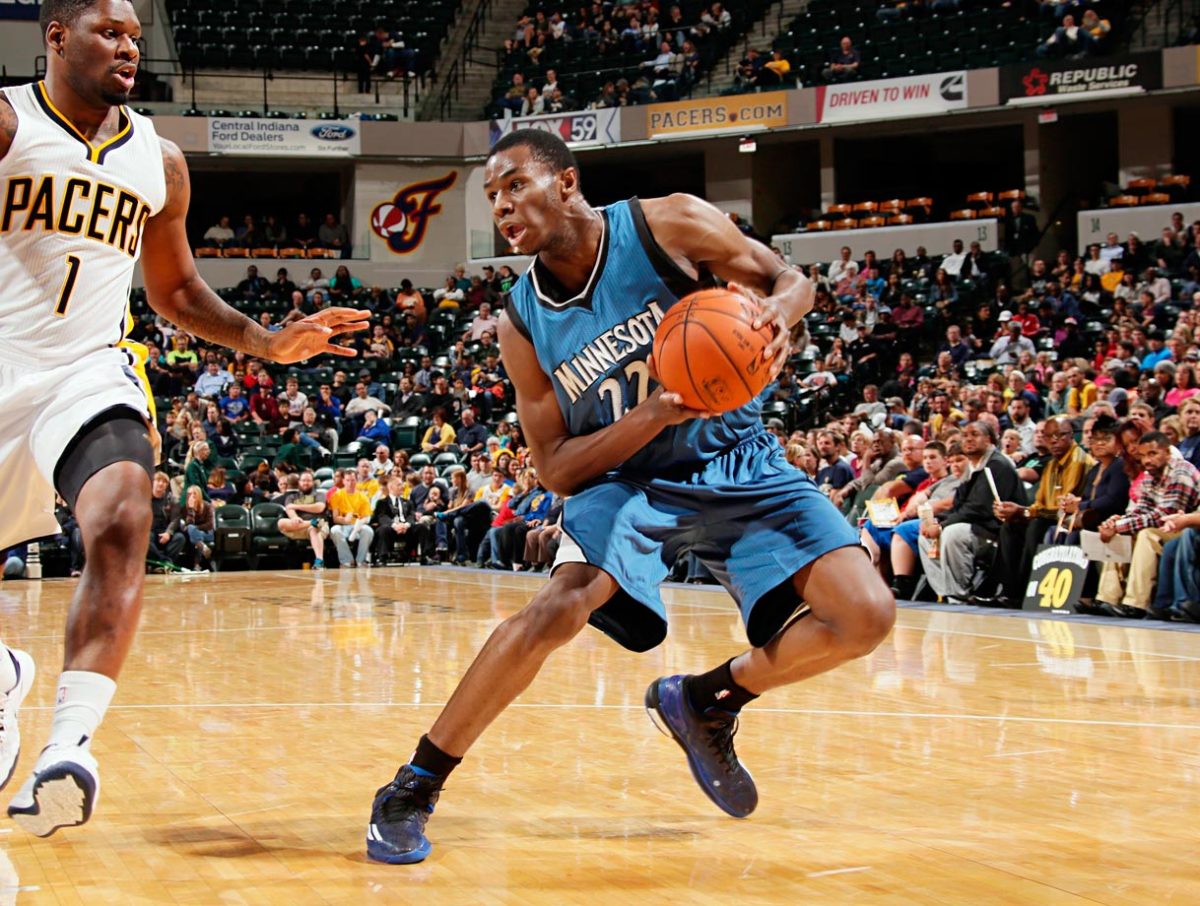
Cleveland Cavaliers
2015: Karl-Anthony Towns
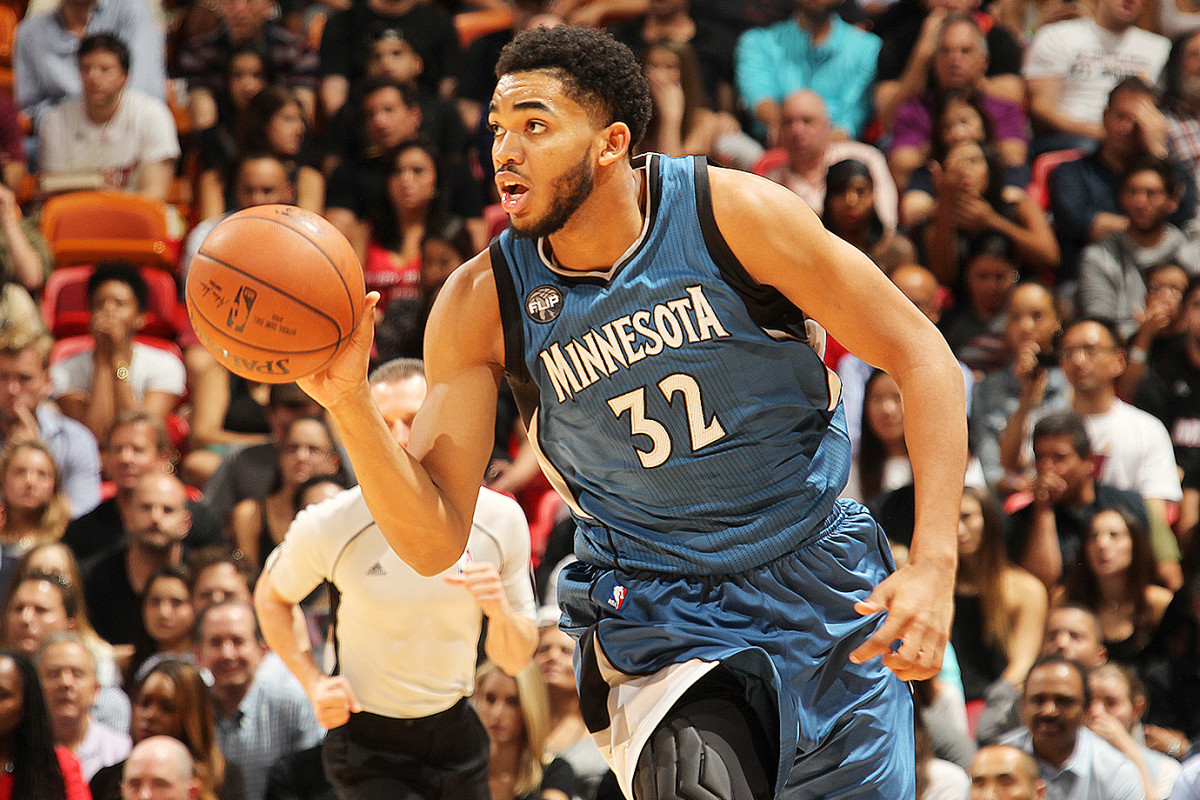
Another interesting Portsmouth subplot: the NBA uses the tournament to upgrade and diversify its coaching ranks. The league’s Assistant Coaches Program uses events like these to offer former players low-stress environments to hone their skills and receive expert professional development.
“Oftentimes, players haven’t had training as far as networking, presenting themselves, identifying their strengths,” senior vice president of player development Greg Taylor told SI.com. “We’re hopeful that we can plug them into as many marquee opportunities as possible.” Program alums include former Pelicans head coach and current Thunder assistant Monty Williams, college head coaches Mark Price (Charlotte) and Reggie Theus (Cal-State Northridge) and current assistants including James Posey (Cavs) and Popeye Jones (Pacers).
Among the coaches at this year’s PIT was longtime NBA forward Sam Perkins, who named Isaiah Miles (St. Joseph’s), Gabe York (Arizona) and Nick Faust (Long Beach State) as the standouts on his team. Perkins said he valued his mentorship opportunity, and also spoke to the value of a four-year college career in terms of NBA readiness.
“The majority of guys won’t play right away because they lack the skills or they’re not fundamentally sound, don’t know the terminologies,” Perkins told SI.com. “Coaches have to take extra time to help them come along…I think that’s the hardest part for some guys, the game is so fast and you [have to] try to remember 50 plays.”
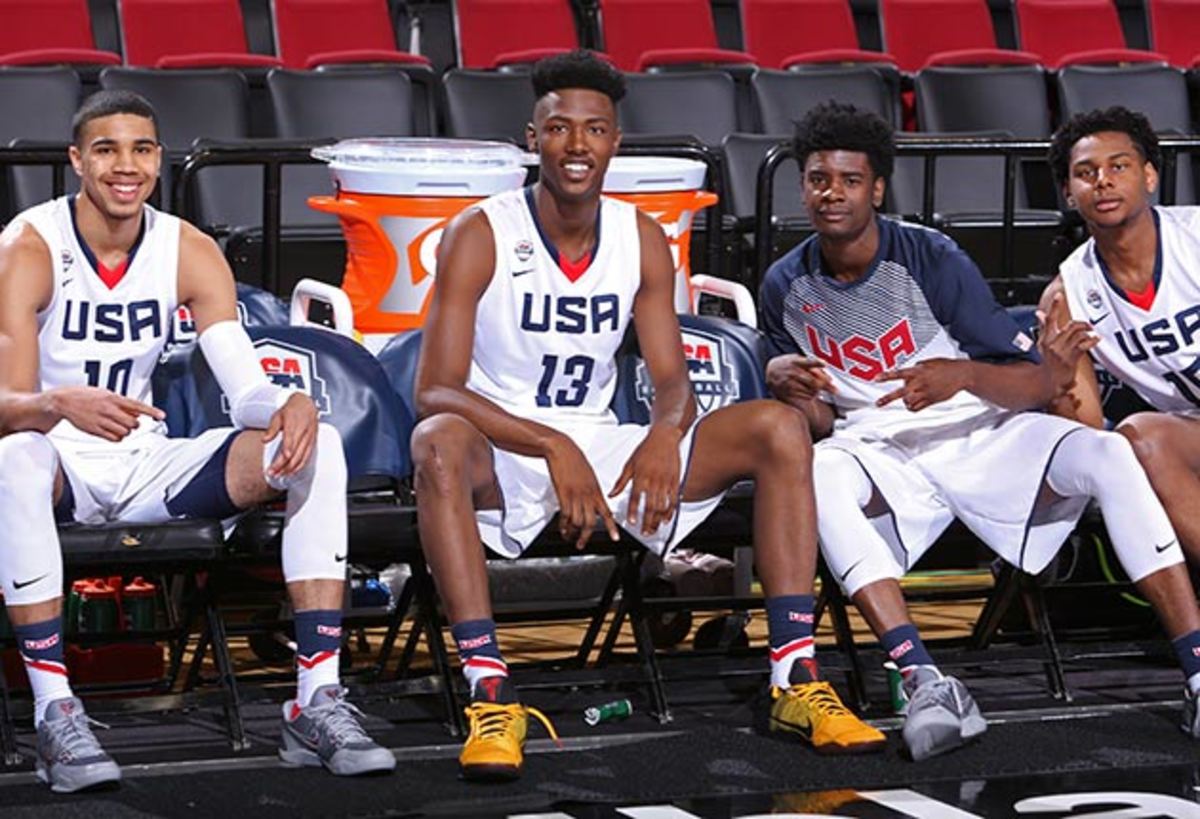
It’s never too early: the 2017 draft
Draft nerds, you’ve heard the rumblings…the 2017 draft class is on the way, and it’s pretty much unanimously seen as an upgrade over this year's iteration. April brought three high-profile events offering NBA teams scouting access: the McDonald’s All-American Game, the Hoop Summit and the Jordan Brand Classic.
Over the past few years, I’ve managed to get a firsthand look at a majority of the names projected at the top. Scouts I spoke with spoke to the depth of this group, but conceded there’s no surefire superstar among the bunch. Brandon Ingram is young enough to be in this class, and would probably rate as its best prospect.
For the forward-thinking, here are six names to know.
1. Harry Giles, 6’10” PF, Duke: Giles has star potential, but is currently recovering from the second torn ACL of his high school career. He has a lot to prove in Durham next season. He was a tremendous athlete pre-injury as a high-energy post player with elite measurables (7’3” wingspan, 9’1” standing reach). Not yet a comfortable shooter. Monitor his progress closely.
2. Josh Jackson, 6’8” G/F, Kansas: Jackson has the size and explosive ability to be a star. When playing hard, he was one of the best high school defenders I’ve ever scouted. His jump shot is erratic and will ultimately determine his future as a scorer.
3. Jayson Tatum, 6’8” G/F, Duke: Tatum, the 2016 Gatorade High School Player of the Year, rounds out what is for now widely seen as the consensus top three. He boasts a variety of offensive skills and a 6’11” wingspan. That said, he’s a little bit in love with his mid-range jumper, and inconsistent from three. Tatum’s pretty good at everything, but so far has yet to show he’s elite in any one area.
4. Markelle Fultz, 6’4” PG, Washington: Fultz truly stood out at Jordan Brand Classic practice and his stock is certainly on the uptake. His feel for the game is unmatched among his peers, and on second viewing he proved to be much more athletic than I originally thought. With his size, shooting potential and passing ability, right now he’s the best guard and most college-ready player in the class. He might be the only reason to stay up for Pac-12 games on the East Coast.
5. Malik Monk, 6’4” G, Kentucky: There’s a crop of recent successful draftees that register the response of “Wow, I’ve never seen anyone physically do that as part of a functional basketball play before.” Think Karl–Anthony Towns, Giannis Antetokounmpo and Dennis Schröder. Well, the first highlight in this video was probably the best high school dunk I’ve ever seen in person.
While being careful not to stoke the flames of overhype here, Malik Monk is in that category as an athlete. He’s greatly improved as a shooter. He’s probably not a true point guard, but he can make plays for others, and in today’s league, that can be enough. And guess what? He’s about get some coaching from a guy with a pretty good track record with freakishly-gifted guards. He’s got a chance to end up as the best player in this class.
6. Terrance Ferguson, 6’7” SG, Arizona: SI’s Ben Golliver attended this year’s Hoop Summit in Portland. We engaged in a brief text conversation during the game. Terrance Ferguson came up. Roughly 45 seconds later, Ferguson went on a three-point shooting terror spree. He knocked down four straight shots from deep, eventually set an event record with seven, and put himself squarely on the NBA map. His shooting and defensive potential profile very well at the next level. He’s one to watch.
Interest piqued? Go forth and research. We’ll see you at the draft combine in Chicago. Until then, there are YouTube wormholes just waiting to be explored.
